- Home
- Ann M. Martin
Abby's Book Page 2
Abby's Book Read online
Page 2
“The only thing that isn’t identical is … ” began one.
“ … our husbands,” finished the other. They giggled.
Then they squatted so they could look Anna and me in the eyes.
“It’s wonderful to have an identical twin,” said one.
“You always have your best, best friend close by,” said the other.
“Always looking alike.”
“Always thinking alike.”
“Doing the same things.”
“Always together,” they said in unison.
Jean and Jan looked lovingly at one another and smiled. “Two peas in a pod.”
I noticed that people walking past us were staring. I heard someone say, “Wow. Two sets of twins. I wonder if they’re related?”
That afternoon, Anna and I had an argument about what game to play. I wanted to play with a ball in the backyard and she wanted to color in our new coloring books. In the end, we did a little of both. I wondered if Jean and Jan ever argued.
Even though Anna and I disagreed from time to time, I knew that we argued far less than our friends did with their brothers and sisters. For instance, we had no trouble sharing toys.
We had identical doctor’s kits, identical baby dolls, identical collections of stuffed animals, and the same make-your-own-necklace kits. Those were all gifts. But even when we picked out our own toys, we usually wanted the same thing. It made life pretty simple and balanced for us and our parents.
Until my dad took us to pick out school supplies for first grade.
The school had sent a list:
Anna and I were very excited. We’d seen big kids walking to the elementary school wearing backpacks. Now we were the big kids.
There was a store at the mall with three long rows of school supplies. It was buzzing with kids picking out their stuff for the first day of school. We started out in the backpack aisle.
Anna and I stared at the five rows of hanging backpacks. They came in a rainbow of colors and a lot of them were covered with pictures and words. I noticed a Sesame Street backpack (too young), a Spiderman backpack (not my style), a Barbie doll one (too pink for my taste), a backpack in the shape of a teddy bear (too silly).
Anna agreed with me in rejecting all of the above. So when she yelled out, “There it is. There’s my backpack,” I assumed it was the same one I had just spotted in the top row.
My choice was a green pack covered with sports symbols. I could see a baseball, a basketball, and a pair of ice skates imprinted on it. I couldn’t wait for Dad to take it down so I could see what else was on my new backpack.
But Anna wasn’t pointing at the sports backpack. She was pointing to the bottom rack at a backpack shaped like a grand piano. It had a pattern of white and black keys running up the side. When Anna and I realized that we’d chosen different backpacks, we just stared at one another.
Dad sized up the situation very quickly. “Okay,” he said. “Anna gets the piano. Abby, you can have the sports pack.”
I felt very weird inside. We almost always had the same things. I couldn’t imagine going to first grade looking different from Anna. “No,” I said. “I don’t want it.”
“Do you want the piano like Anna?” he asked.
I shook my head no. I couldn’t explain why, but I felt horribly sad.
Then Anna started to cry, which made me cry too. “I don’t want the piano anymore,” she sobbed. “I don’t want a backpack. I don’t want to go to first grade.”
“Me neither,” I said.
Dad comforted us. And in the end, we picked out identical school supplies. Plain purple backpacks and notebooks with a rainbow design.
When we walked into first grade two days later, no one but our parents could tell us apart.
Elvia, a red-haired girl I recognized from kindergarten, was assigned to the seat next to mine. “Which one are you?” she asked.
“Abby,” I answered.
“What’s the other one’s name?” she asked.
“Anna,” I answered.
“Oh, yeah,” Elvia grinned. “Anna and Abby.”
A girl I didn’t know sat in the seat next to me.
“Rema!” Elvia exclaimed. “Yeah! You’re in our class.” Pointing to me, Elvia told Rema, “This is Anna. Her sister’s name is Abby. They’re twins. They look exactly alike.”
“I’m Abby,” I told Elvia.
Elvia shrugged her shoulders. “I told you I can’t tell.”
“Hi, Abby-Anna,” said Rema.
“Hey, neat,” laughed Elvia. “Abby-Anna. I’ll call both of you ‘Abby-Anna.’ Then I won’t make a mistake.”
I slumped in my seat. So far, I didn’t like first grade.
By the end of the first week, all of the kids in the class were calling us Abby-Anna.
“It’s weird,” said Anna.
“I hate it,” I said.
As our class was leaving the room on Friday afternoon, Mrs. Rothchild called, “Anna, could you come here, please?” Anna was already out the door, so I knew Mrs. Rothchild was talking to me. I didn’t bother to tell her I was Abby, not Anna. At least she wasn’t calling me “Abby-Anna.”
Mrs. Rothchild handed me a sealed envelope. “Please give this note to your parents.”
Mom had just started a publishing job in New York City and didn’t arrive home until six-thirty or later. But Dad had fixed his schedule at work so he could pick us up after school every day. Anna and I loved being with Dad during those hours between the end of school and when Mom came home.
Sometimes Dad had office work to do at home, but we knew we could interrupt him anytime. He’d almost always take time out to play ball with us or listen to music and play board games. Then we’d keep him company while he made dinner. Sometimes we helped with the cooking and we always set the table.
The day Mrs. Rothchild gave me the note, Dad was waiting for us outside school as usual. I handed him the sealed envelope. “It’s for you,” I explained. “From our teacher.”
“You two already in trouble?” Dad asked with a grin.
Anna shook her head and mumbled, “I don’t think so.”
“Nah,” I said. “We’re not in trouble. But Mrs. Rothchild doesn’t like that we’re twins. I can tell.”
At home, Dad put out a snack of juice and cookies. When the three of us were sitting around the table, he finally opened the note from our teacher and read it out loud.
Mrs. Rothchild’s letter went on to explain that if Anna or I were in a dangerous situation — such as walking under a falling brick — she wanted to know which name to call out in warning. I thought that was pretty dumb, but Dad said she had a point.
“But Dad, our school isn’t made of bricks,” I argued.
“It could be anything falling,” Dad explained, “like a flowerpot or a notebook. Or what if a swerving car was about to hit you?”
“I promise I’ll look up when anyone shouts ‘Anna,’ ” I said. “Besides, I don’t even like blue.”
“I like blue,” said Anna.
“Then it’s settled,” said Dad. “Anna wears blue and Abby wears red.”
When Mom came home, my father showed her the letter. She agreed with Dad that we should try color coding for school. So after dinner, we went to Anna’s and my bedroom and put all the red clothing from our wardrobe into my drawers and all the blue clothing into Anna’s drawers.
“You can wear your yellow, purple, and green clothes on weekends,” my father joked.
I ended up with two red T-shirts, two pink blouses, matching red sweaters, a bunch of red socks, two identical red wool skirts, and two red baseball caps.
Anna had all my blue clothes, except my blue jeans. Mom said I could wear those as long as I wore a red top with them.
On Monday morning Anna and I went to school dressed in our colors. Mrs. Rothchild was all smiles. “Well, that’s better,” she said. “Red for Anna and blue for Abby.”
“It’s the other way around,” I told her. “I’
m Abby.”
“Right,” she said with a frown. “Well, go to your places.”
I didn’t like this color coding business. Especially when Mrs. Rothchild explained it to the other kids in the class. For some reason they thought it was hilarious. Even when Mrs. Rothchild explained the falling brick idea, there were a few giggles.
For the rest of the day, Mrs. Rothchild had no trouble keeping Anna and me straight, but the kids didn’t bother to separate us by color. They’d already decided we were both Abby-Anna.
“Abby-Anna, wanna play kickball during recess?” Elvia asked, even though I was sitting at the desk right next to her so she knew that I was Abby.
I thought I hated the Abby-Anna name more than anything, but by the end of the day, we had nicknames I hated even more.
During indoor recess that afternoon, Rema and I were standing with Anna next to Anna’s desk. Todd, this kid who sat behind Anna, stepped up to us. “Hey, Blue,” he said to Anna, “got a pencil I can borrow?”
Anna handed him a pencil. But her face was turning beet red with embarrassment and anger. She hated being called by her color.
A few other boys heard Todd call Anna “Blue” and cracked up. One of them said, “Blue is for boys and pink is for girls.” He pointed to Anna. “Maybe this one is a boy.”
Well, that cracked up the boys even more, and I wanted to crack their heads open.
I punched Todd on the arm. “Her name is Anna,” I shouted.
Mrs. Rothchild clapped her hands to signal the end of recess.
“Abby, take your seat,” ordered Mrs. Rothchild. “Boys, calm down.”
There were a bunch of kids in our class who loved to tease. After that, Anna and I were Blue or Red to most of the boys. The rest of the kids — the girls and our friends — called us Abby-Anna. There was a two-week period when the only people who called us by our proper names were Mrs. Rothchild and our parents.
I couldn’t wait for weekends, when we could dress alike in whatever colors we wanted and be called by our own names.
On Saturday morning, Anna and I dressed identically in white T-shirts with green cardigan sweaters and black jeans. Mom had gone to work in the city that day, so it was just the three of us for breakfast. Dad was cooking up our favorite (his, too) — walnut waffles with maple syrup.
“So how’s this color thing working out at school?” he asked when we were gobbling down seconds.
“Awful!” I said.
“You mean they still can’t keep you straight?” he asked.
“That part is okay,” I answered.
“Well, then,” he said, “what’s the problem?”
I could feel that Anna didn’t want me to tell our father that the kids were teasing us with our color names. Anna and I had an unspoken arrangement that we had to agree about something before we told our parents. So I didn’t tell Dad how much we hated the color coding and that being an identical twin had become a major pain for both of us.
After breakfast, we went back to our room to talk privately. I asked Anna why she wouldn’t tell Dad that we didn’t like the color coding.
“I don’t want to make Daddy unhappy,” she explained.
“But he’s our father,” I said. “We should tell him.”
Anna shook her head.
I understood how Anna felt, but I also wanted to fix what was going wrong for us at school. I tried to convince Anna.
“We’re not totally, positively alike,” I told her. “I don’t want to be like those twins in the shopping mall.”
“Me neither,” agreed Anna.
“But everybody at school thinks we’re like that,” I said.
“They know we’re different.”
“No, they don’t. Only Mom and Dad can tell us apart.”
“Mrs. Rothchild can,” said Anna.
“Mrs. Rothchild doesn’t think we’re different,” I told Anna. “All she knows is that red and blue are different.”
“Our friends can tell us apart.”
“Who? They call us both Abby-Anna.”
“They just like to kid around,” said Anna. “It’s a game.”
I still hadn’t convinced my sister that we were seen as copies of the same person and that we had to do something about it.
Finally, I came up with a brilliant idea that would prove to Anna that people really couldn’t tell us apart.
“On Monday, let’s switch clothes,” I told her. “We’ll pretend we’re each other. I’ll be Anna and you be Abby. Then you’ll see. No one will know the difference, even Mrs. Rothchild. She’ll still call the girl dressed in red, sitting in the fourth row Abby and the girl dressed in blue in the first row Anna.”
“I don’t know,” murmured Anna.
“Come on, Anna,” I pleaded. “It’ll be fun. You’ll see. No one will be able to tell.”
Finally, before we went to bed on Sunday night, she agreed. “We’ll switch clothes at school,” I told her, “so Mom and Dad won’t know.”
“If we both wear blue jeans,” Anna suggested, “we’ll only have to change tops.”
When we walked into school the next morning, we went straight to the girls’ room, ducked into a stall, and exchanged shirts.
When we went into our classroom, Anna automatically headed for her seat in the first row. I gave her a little push toward the other end of the room. “See you at recess, Abby,” I said.
I sat in Anna’s seat in front of Todd. “Hey, Blue,” he said, “how about a pencil?”
I turned around and glared at him. “My name is not Blue. And bring your own pencils.” As soon as I said it, I knew I’d made a mistake. My sister would never talk back to Todd like that.
Todd looked a little surprised. “Forget it, Blue,” he growled. “I don’t need your old pencil.” A minute later, Todd was kicking my chair and chanting under his breath. “Blue, Blue, how do you do?”
I pretended I was Anna and didn’t say anything.
After the Pledge of Allegiance, Mrs. Rothchild always announced the name of the student who would sing the first line of “My Country ’Tis of Thee.” It was a different student every day, and I had had my turn the week before. I hated doing it. I didn’t have a good voice. The morning that I was Anna, Mrs. Rothchild said, “Anna, today you will begin the song.”
Everyone waited for Anna to begin. Why wasn’t she singing? I wondered. I turned around to see what was going on with Anna and realized that everyone was looking at me. Oops. I was Anna, so I had to sing the first line of “My Country ’Tis of Thee” again.
So far, I didn’t like being Anna.
Later Anna and I walked out to the playground together. “Abby,” I said, “what will we do for recess?”
“I don’t know, Anna,” my sister said to me.
Elvia and Rema ran to us. “Come play kickball, Abby-Anna,” said Rema.
“I’m going to the library to get another book,” Anna told our friends.
“Abby, you love kickball,” I said. I jabbed her waist with my elbow as a reminder.
Anna looked a little confused for a second, then jumped around shouting, “Yes. I love kickball. Let’s play kickball!”
I had to laugh. She was imitating me and it wasn’t like her at all. How could anyone think that Anna and I were just copies of the same person?
As we were walking back to our classroom after recess, Anna whispered in my ear, “I want to switch back. I don’t want to be you anymore.”
Just then I saw the last person in the world I expected to see at school that day. Dad! I wanted to hide. Would he be mad that we’d switched places? Would he tell our teacher? Would we get into big trouble?
My father put an arm around each of us.
“Dad,” I said, “what are you doing here?”
“I have to go to the Pine Barrens this afternoon. Mrs. Trono from next door will pick you up after school and stay with you until I get home. I came to tell you.”
“Oh, okay,” I said. Anna didn’t say anything. She was
too frightened that Dad would know we were playing a trick on our teacher and classmates.
“I’ll see you around five,” said Dad. “Meanwhile, behave yourselves.”
“You too,” I said in the joking way I had with him. Then I thought, I’m Anna today and Anna would never joke like that. I should act like Anna, even in front of Dad. And then I thought, Dad must already know that we’ve switched. He can tell us apart no matter what.
Just then, Dad bent over and kissed me on the forehead. “ ’Bye, Anna,” he said.
I watched in amazement as he kissed Anna on the head and said, “ ’Bye, Abby.”
As Dad walked away, Elvia said, “Boy, Abby-Anna, you have a great dad. He’s so nice.”
He might be nice, I thought, but he doesn’t even know his own daughters. I felt like someone had just punched me in the chest, and it took me a second to get my breath back.
During the rest of the day I didn’t even try to pretend I was Anna. But still, no one seemed to notice that I was taking my sister’s place.
As we were leaving the classroom that afternoon, Mrs. Rothchild stopped us. Maybe she at least had noticed that Anna and I had switched places. A smile spread across her face. “Girls,” she said, “I want to thank you for being so cooperative about wearing separate colors. It really does help the rest of us. I’m sure you must get bored wearing the same color all the time, but you’ll get used to it.”
As we walked away, I thought unhappily about the rest of my life at school. I would never be Abby. I’d always be the red one. And Anna, who’d never be known for her real self, would always be the blue one.
Mrs. Trono met us outside school. “Well, you two look sad enough to make me weep,” she said with a wink. “What’s up?”
“Nothing,” Anna and I said in unison.
I didn’t joke around with Mrs. Trono the way I usually did. Why bother being myself and being different from Anna if no one knew we were different? After all, even our own father couldn’t tell us apart.
Dad came home an hour or so after we did. He was carrying a big bag of groceries and acting like his jolly self. But Anna and I felt terrible. We were still upset that Dad couldn’t tell us apart.

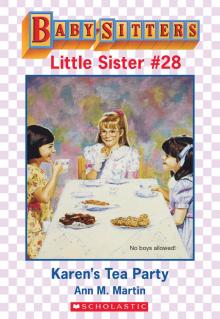 Karen's Tea Party
Karen's Tea Party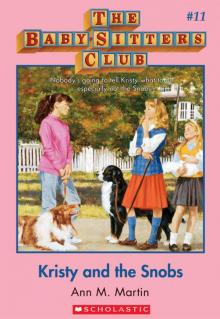 Kristy and the Snobs
Kristy and the Snobs Best Kept Secret
Best Kept Secret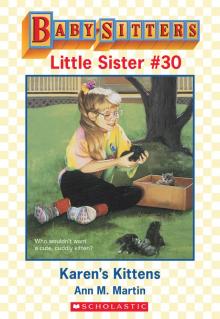 Karen's Kittens
Karen's Kittens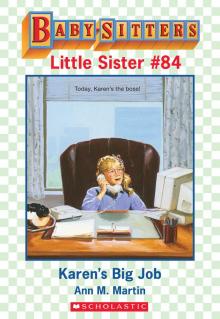 Karen's Big Job
Karen's Big Job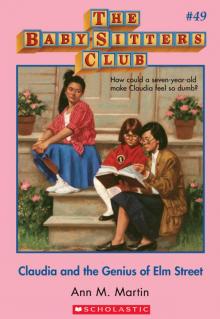 Claudia and the Genius of Elm Street
Claudia and the Genius of Elm Street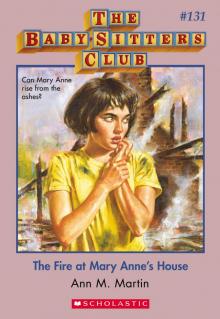 The Fire at Mary Anne's House
The Fire at Mary Anne's House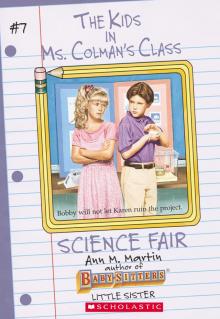 Science Fair
Science Fair Me and Katie (The Pest)
Me and Katie (The Pest)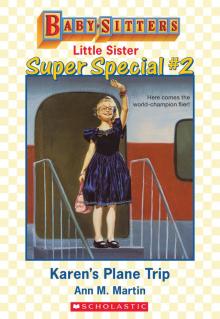 Karen's Plane Trip
Karen's Plane Trip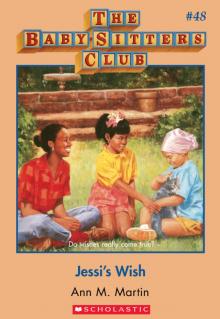 Jessi's Wish
Jessi's Wish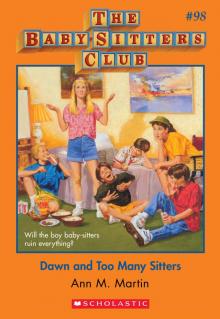 Dawn and Too Many Sitters
Dawn and Too Many Sitters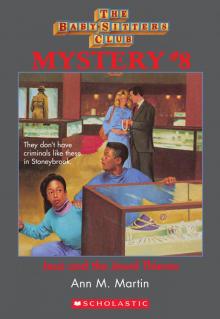 Jessi and the Jewel Thieves
Jessi and the Jewel Thieves Eleven Kids, One Summer
Eleven Kids, One Summer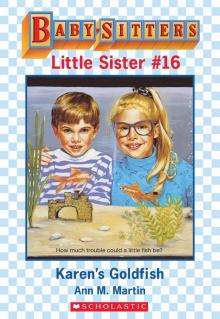 Karen's Goldfish
Karen's Goldfish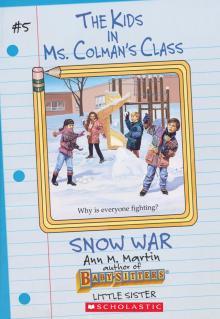 Snow War
Snow War Abby and the Secret Society
Abby and the Secret Society Keeping Secrets
Keeping Secrets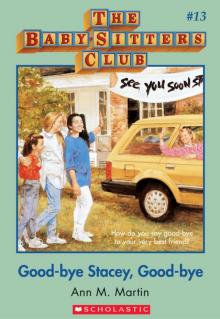 Good-Bye Stacey, Good-Bye
Good-Bye Stacey, Good-Bye Karen's Sleepover
Karen's Sleepover Claudia and the World's Cutest Baby
Claudia and the World's Cutest Baby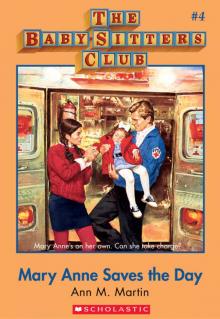 Mary Anne Saves the Day
Mary Anne Saves the Day Mallory and the Dream Horse
Mallory and the Dream Horse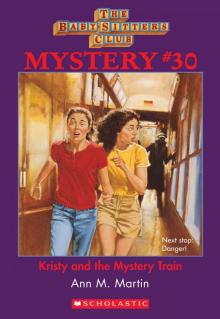 Kristy and the Mystery Train
Kristy and the Mystery Train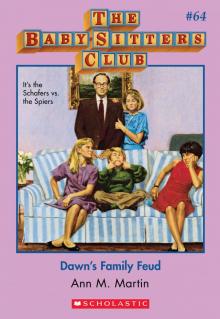 Dawn's Family Feud
Dawn's Family Feud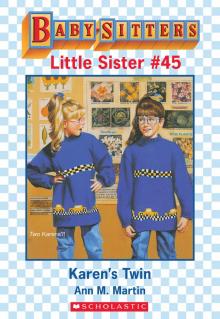 Karen's Twin
Karen's Twin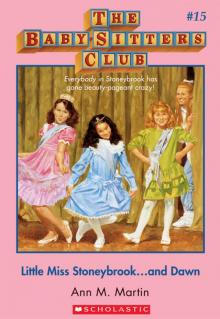 Little Miss Stoneybrook... And Dawn
Little Miss Stoneybrook... And Dawn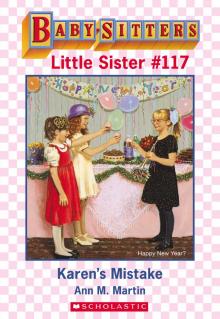 Karen's Mistake
Karen's Mistake Karen's Movie Star
Karen's Movie Star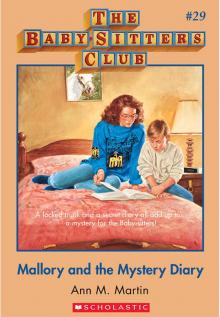 Mallory and the Mystery Diary
Mallory and the Mystery Diary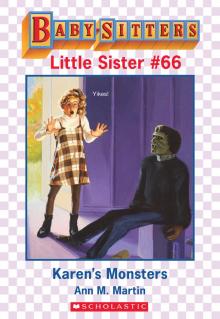 Karen's Monsters
Karen's Monsters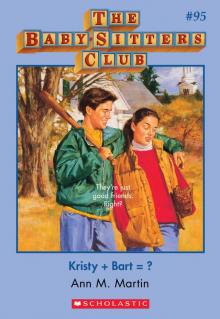 Kristy + Bart = ?
Kristy + Bart = ?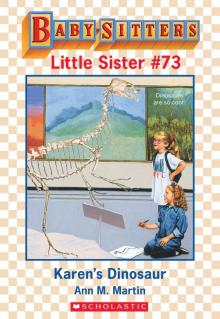 Karen's Dinosaur
Karen's Dinosaur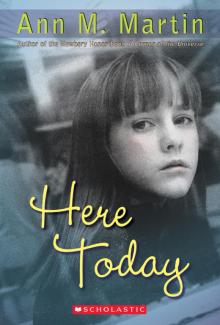 Here Today
Here Today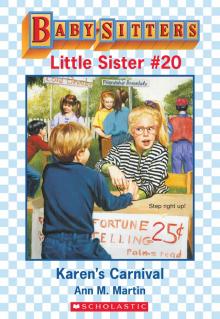 Karen's Carnival
Karen's Carnival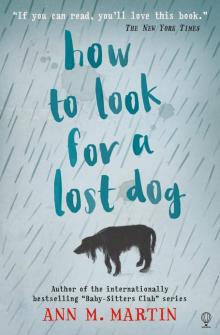 How to Look for a Lost Dog
How to Look for a Lost Dog Stacey vs. Claudia
Stacey vs. Claudia Stacey's Ex-Boyfriend
Stacey's Ex-Boyfriend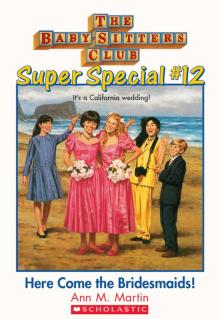 Here Come the Bridesmaids!
Here Come the Bridesmaids! Graduation Day
Graduation Day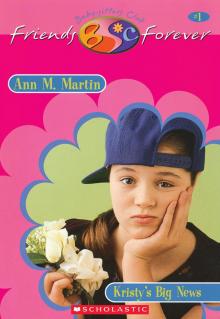 Kristy's Big News
Kristy's Big News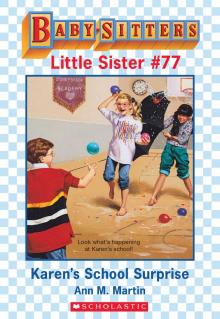 Karen's School Surprise
Karen's School Surprise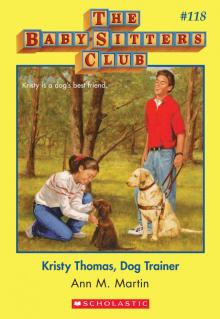 Kristy Thomas, Dog Trainer
Kristy Thomas, Dog Trainer Baby-Sitters' Christmas Chiller
Baby-Sitters' Christmas Chiller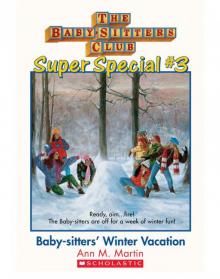 Baby-Sitters' Winter Vacation
Baby-Sitters' Winter Vacation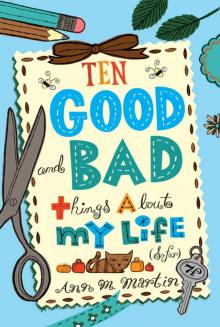 Ten Good and Bad Things About My Life
Ten Good and Bad Things About My Life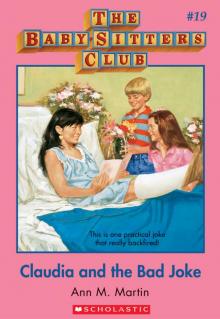 Claudia and the Bad Joke
Claudia and the Bad Joke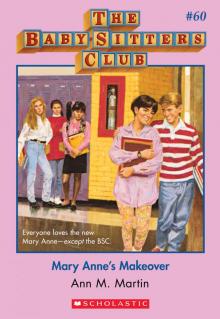 Mary Anne's Makeover
Mary Anne's Makeover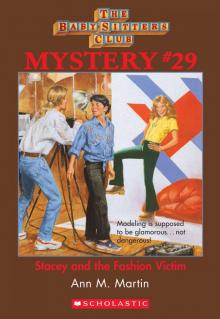 Stacey and the Fashion Victim
Stacey and the Fashion Victim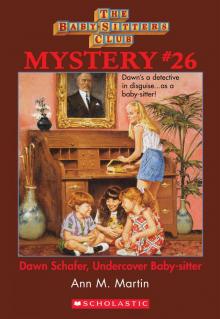 Dawn Schafer, Undercover Baby-Sitter
Dawn Schafer, Undercover Baby-Sitter Karen's Tuba
Karen's Tuba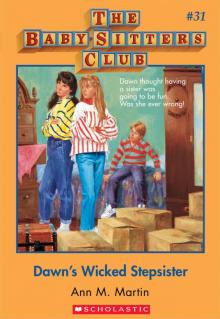 Dawn's Wicked Stepsister
Dawn's Wicked Stepsister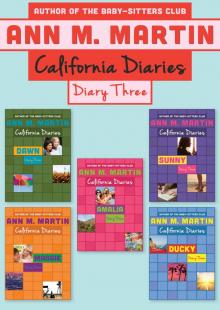 Diary Three: Dawn, Sunny, Maggie, Amalia, and Ducky
Diary Three: Dawn, Sunny, Maggie, Amalia, and Ducky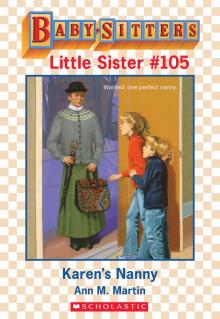 Karen's Nanny
Karen's Nanny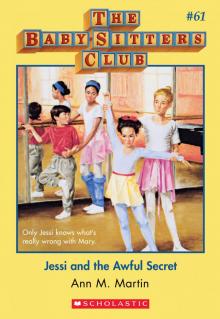 Jessi and the Awful Secret
Jessi and the Awful Secret Karen's New Year
Karen's New Year Karen's Candy
Karen's Candy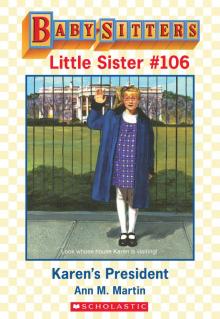 Karen's President
Karen's President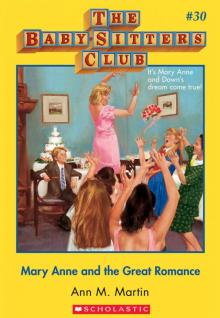 Mary Anne and the Great Romance
Mary Anne and the Great Romance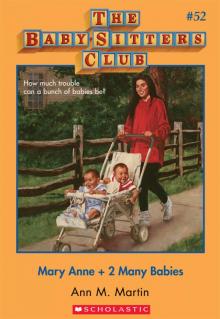 Mary Anne + 2 Many Babies
Mary Anne + 2 Many Babies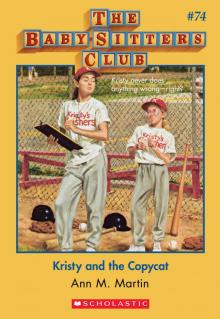 Kristy and the Copycat
Kristy and the Copycat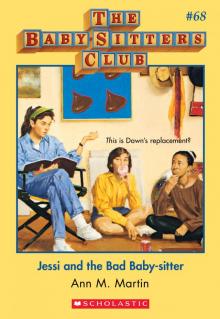 Jessi and the Bad Baby-Sitter
Jessi and the Bad Baby-Sitter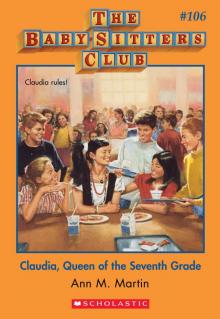 Claudia, Queen of the Seventh Grade
Claudia, Queen of the Seventh Grade Claudia and the Lighthouse Ghost
Claudia and the Lighthouse Ghost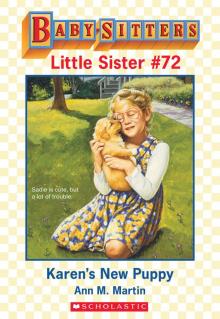 Karen's New Puppy
Karen's New Puppy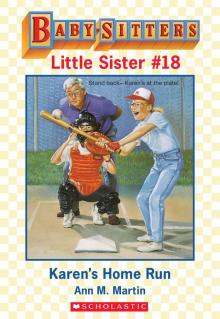 Karen's Home Run
Karen's Home Run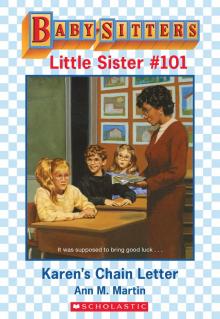 Karen's Chain Letter
Karen's Chain Letter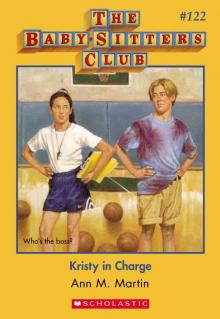 Kristy in Charge
Kristy in Charge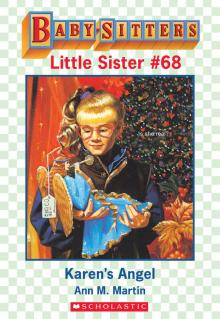 Karen's Angel
Karen's Angel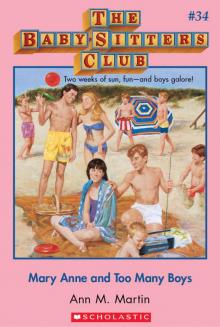 Mary Anne and Too Many Boys
Mary Anne and Too Many Boys Karen's Big Fight
Karen's Big Fight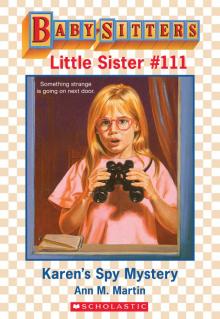 Karen's Spy Mystery
Karen's Spy Mystery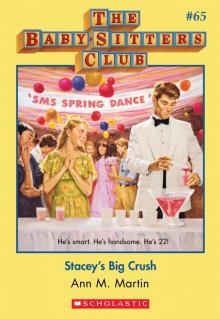 Stacey's Big Crush
Stacey's Big Crush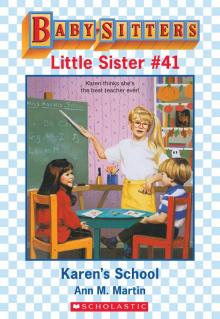 Karen's School
Karen's School Claudia and the Terrible Truth
Claudia and the Terrible Truth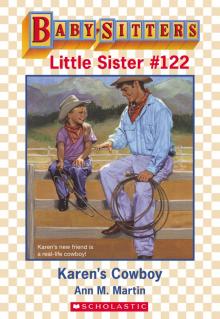 Karen's Cowboy
Karen's Cowboy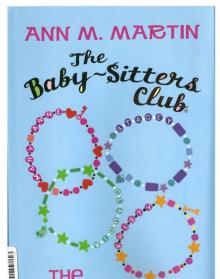 The Summer Before
The Summer Before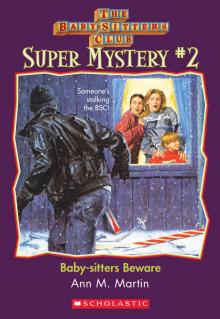 Beware, Dawn!
Beware, Dawn!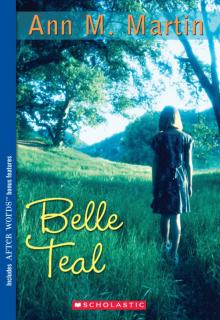 Belle Teale
Belle Teale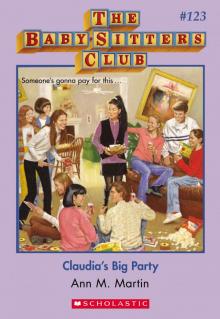 Claudia's Big Party
Claudia's Big Party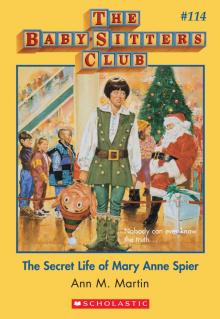 The Secret Life of Mary Anne Spier
The Secret Life of Mary Anne Spier Karen's Book
Karen's Book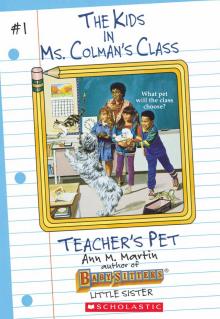 Teacher's Pet
Teacher's Pet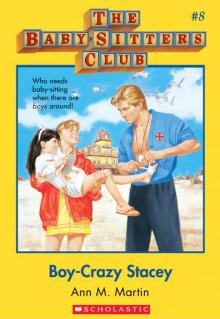 Boy-Crazy Stacey
Boy-Crazy Stacey Claudia and the Disaster Date
Claudia and the Disaster Date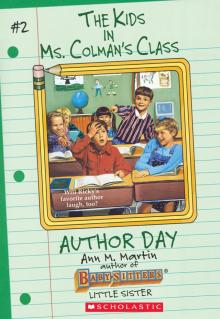 Author Day
Author Day Claudia and the Sad Good-Bye
Claudia and the Sad Good-Bye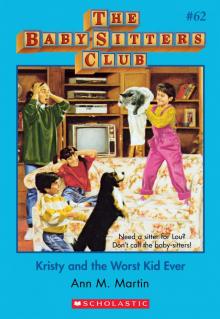 Kristy and the Worst Kid Ever
Kristy and the Worst Kid Ever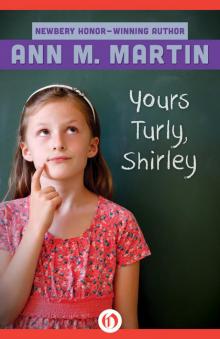 Yours Turly, Shirley
Yours Turly, Shirley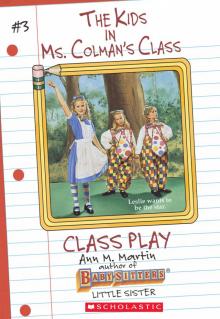 Class Play
Class Play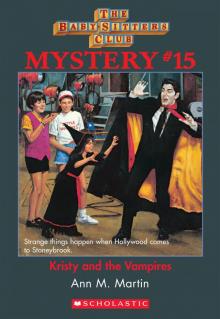 Kristy and the Vampires
Kristy and the Vampires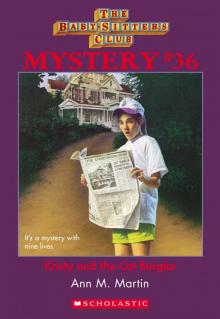 Kristy and the Cat Burglar
Kristy and the Cat Burglar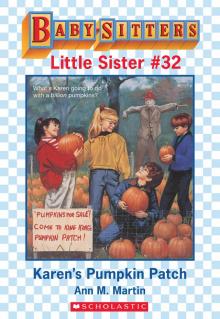 Karen's Pumpkin Patch
Karen's Pumpkin Patch Stacey and the Mystery at the Empty House
Stacey and the Mystery at the Empty House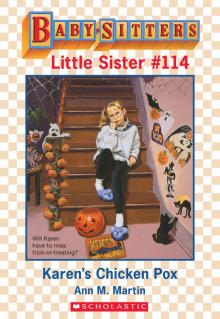 Karen's Chicken Pox
Karen's Chicken Pox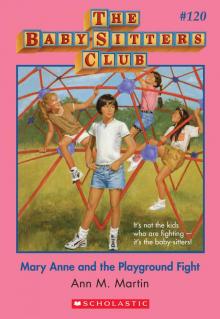 Mary Anne and the Playground Fight
Mary Anne and the Playground Fight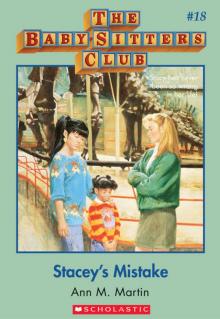 Stacey's Mistake
Stacey's Mistake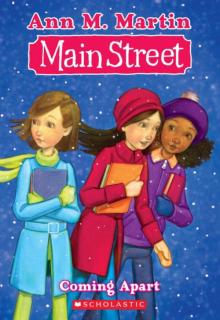 Coming Apart
Coming Apart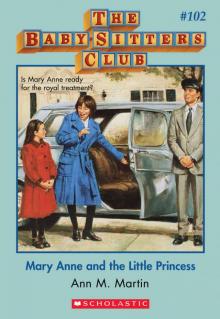 Mary Anne and the Little Princess
Mary Anne and the Little Princess Karen, Hannie and Nancy: The Three Musketeers
Karen, Hannie and Nancy: The Three Musketeers 'Tis the Season
'Tis the Season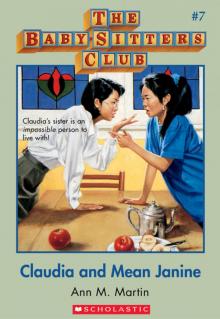 Claudia and Mean Janine
Claudia and Mean Janine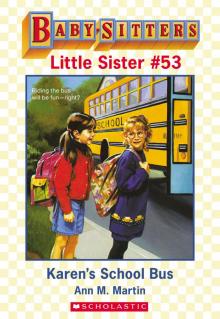 Karen's School Bus
Karen's School Bus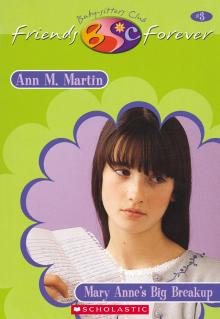 Mary Anne's Big Breakup
Mary Anne's Big Breakup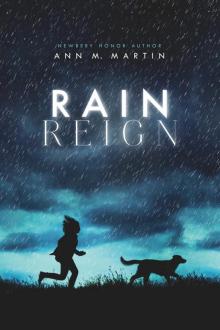 Rain Reign
Rain Reign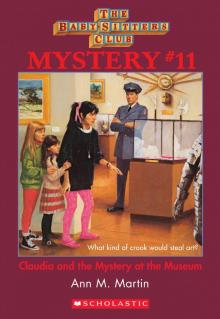 Claudia and the Mystery at the Museum
Claudia and the Mystery at the Museum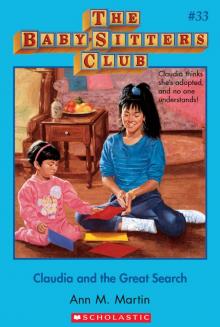 Claudia and the Great Search
Claudia and the Great Search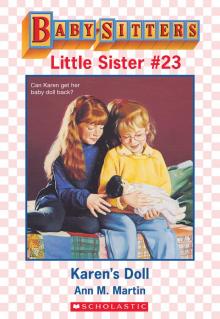 Karen's Doll
Karen's Doll Shannon's Story
Shannon's Story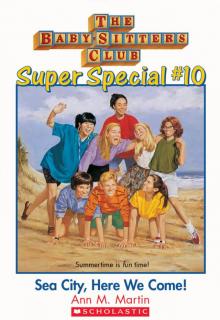 Sea City, Here We Come!
Sea City, Here We Come!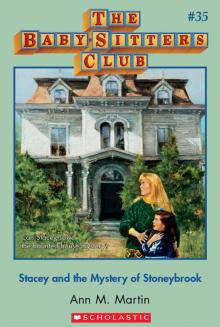 Stacey and the Mystery of Stoneybrook
Stacey and the Mystery of Stoneybrook Karen's Treasure
Karen's Treasure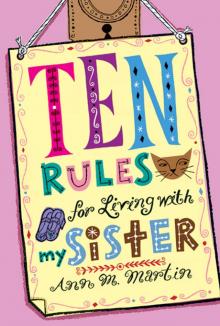 Ten Rules for Living With My Sister
Ten Rules for Living With My Sister With You and Without You
With You and Without You Baby-Sitters' Island Adventure
Baby-Sitters' Island Adventure Karen's Fishing Trip
Karen's Fishing Trip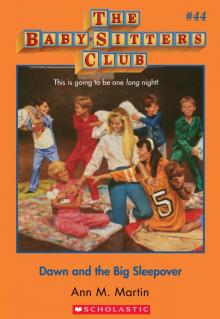 Dawn and the Big Sleepover
Dawn and the Big Sleepover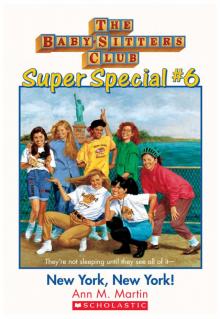 New York, New York!
New York, New York!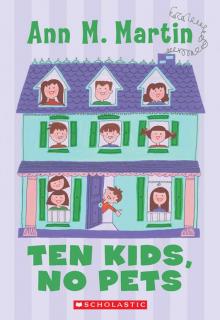 Ten Kids, No Pets
Ten Kids, No Pets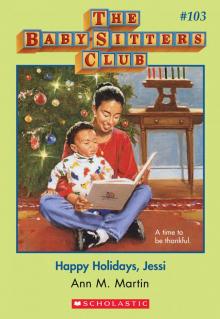 Happy Holidays, Jessi
Happy Holidays, Jessi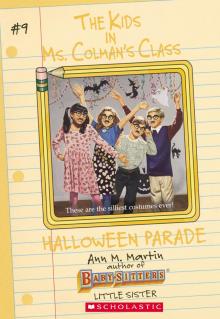 Halloween Parade
Halloween Parade Karen's New Holiday
Karen's New Holiday Kristy Power!
Kristy Power!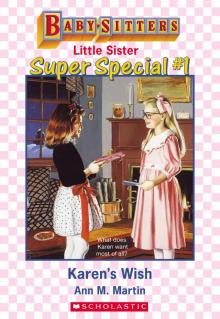 Karen's Wish
Karen's Wish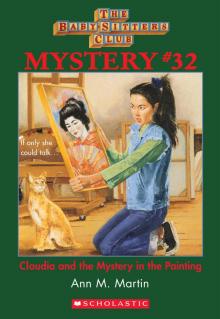 Claudia and the Mystery in the Painting
Claudia and the Mystery in the Painting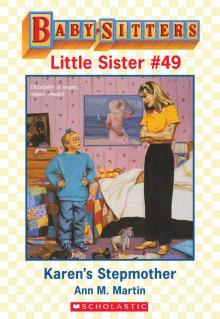 Karen's Stepmother
Karen's Stepmother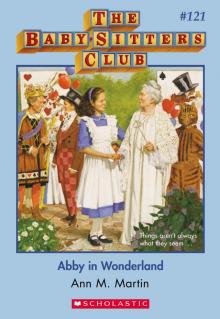 Abby in Wonderland
Abby in Wonderland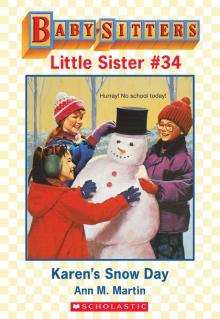 Karen's Snow Day
Karen's Snow Day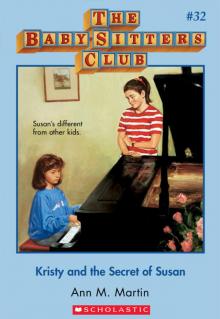 Kristy and the Secret of Susan
Kristy and the Secret of Susan Karen's Pony Camp
Karen's Pony Camp Karen's School Trip
Karen's School Trip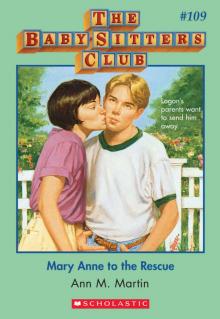 Mary Anne to the Rescue
Mary Anne to the Rescue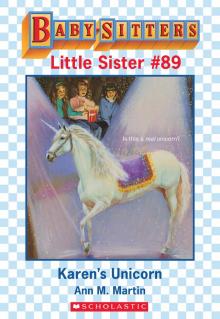 Karen's Unicorn
Karen's Unicorn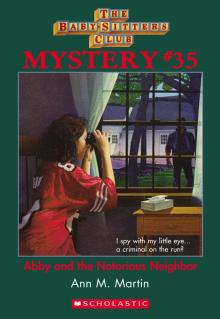 Abby and the Notorious Neighbor
Abby and the Notorious Neighbor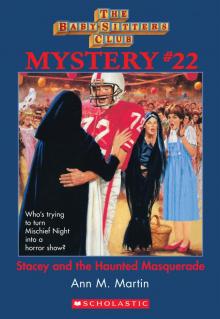 Stacey and the Haunted Masquerade
Stacey and the Haunted Masquerade Claudia Gets Her Guy
Claudia Gets Her Guy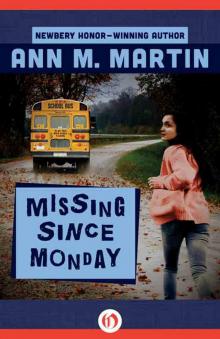 Missing Since Monday
Missing Since Monday Stacey's Choice
Stacey's Choice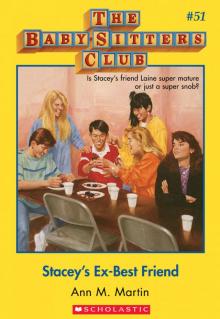 Stacey's Ex-Best Friend
Stacey's Ex-Best Friend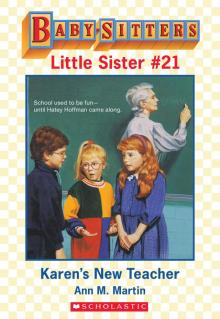 Karen's New Teacher
Karen's New Teacher Karen's Accident
Karen's Accident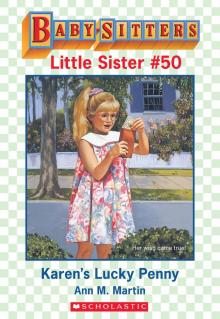 Karen's Lucky Penny
Karen's Lucky Penny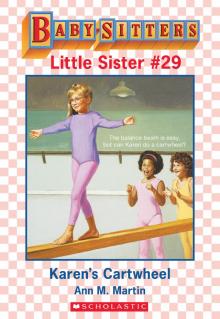 Karen's Cartwheel
Karen's Cartwheel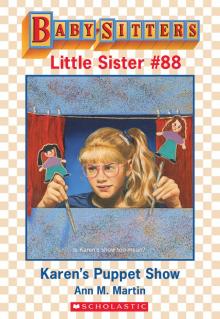 Karen's Puppet Show
Karen's Puppet Show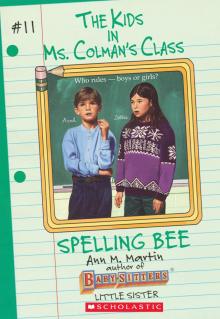 Spelling Bee
Spelling Bee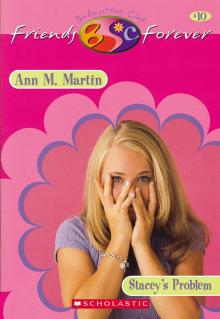 Stacey's Problem
Stacey's Problem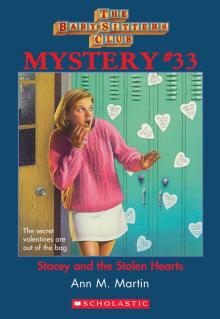 Stacey and the Stolen Hearts
Stacey and the Stolen Hearts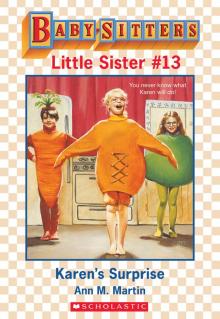 Karen's Surprise
Karen's Surprise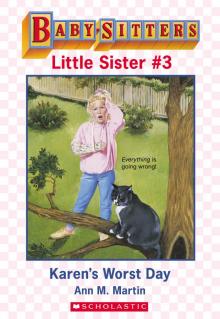 Karen's Worst Day
Karen's Worst Day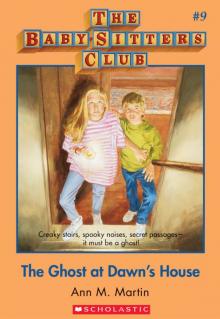 The Ghost at Dawn's House
The Ghost at Dawn's House Karen's Big Sister
Karen's Big Sister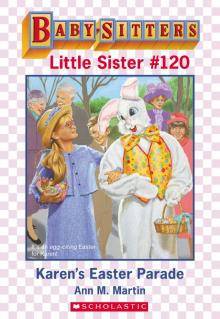 Karen's Easter Parade
Karen's Easter Parade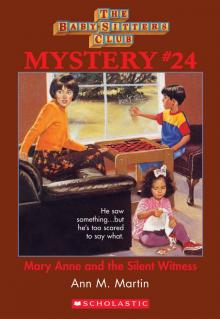 Mary Anne and the Silent Witness
Mary Anne and the Silent Witness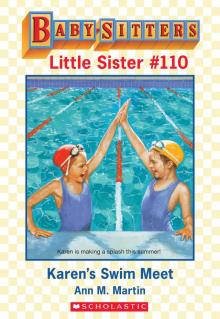 Karen's Swim Meet
Karen's Swim Meet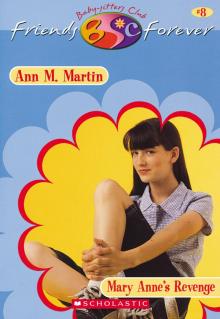 Mary Anne's Revenge
Mary Anne's Revenge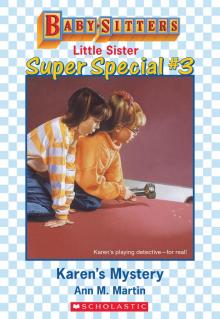 Karen's Mystery
Karen's Mystery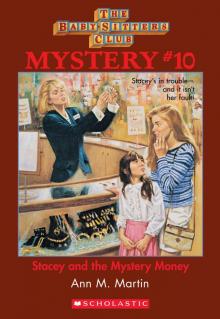 Stacey and the Mystery Money
Stacey and the Mystery Money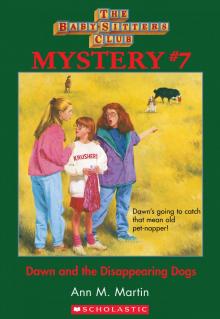 Dawn and the Disappearing Dogs
Dawn and the Disappearing Dogs Karen's Christmas Tree
Karen's Christmas Tree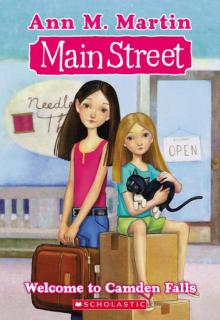 Welcome to Camden Falls
Welcome to Camden Falls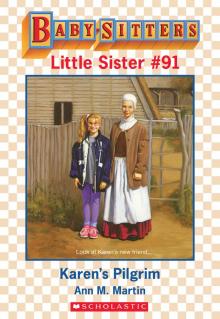 Karen's Pilgrim
Karen's Pilgrim Dawn and the Halloween Mystery
Dawn and the Halloween Mystery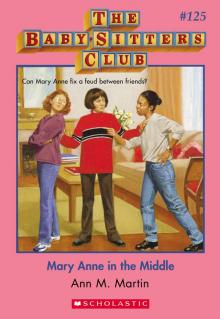 Mary Anne in the Middle
Mary Anne in the Middle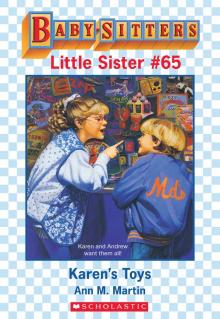 Karen's Toys
Karen's Toys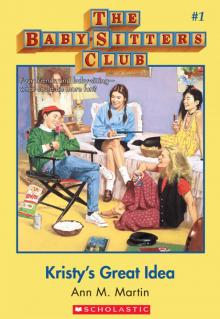 Kristy's Great Idea
Kristy's Great Idea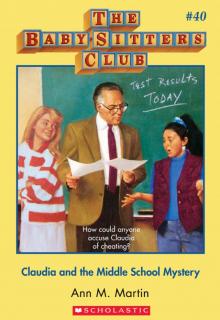 Claudia and the Middle School Mystery
Claudia and the Middle School Mystery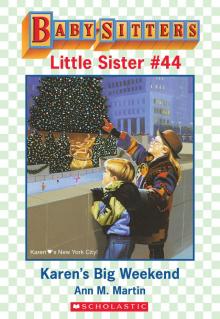 Karen's Big Weekend
Karen's Big Weekend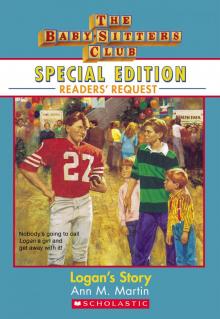 Logan's Story
Logan's Story Karen's Yo-Yo
Karen's Yo-Yo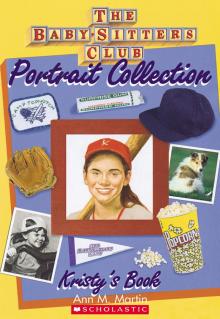 Kristy's Book
Kristy's Book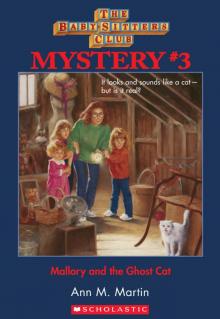 Mallory and the Ghost Cat
Mallory and the Ghost Cat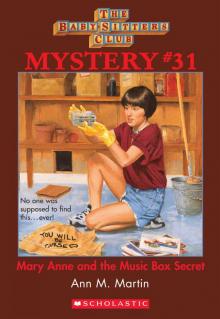 Mary Anne and the Music
Mary Anne and the Music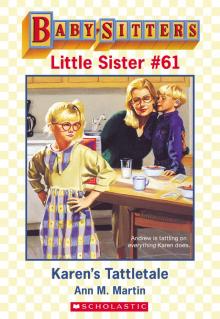 Karen's Tattletale
Karen's Tattletale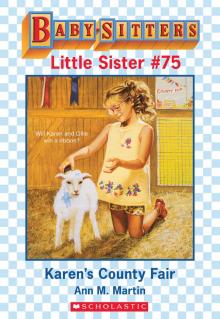 Karen's County Fair
Karen's County Fair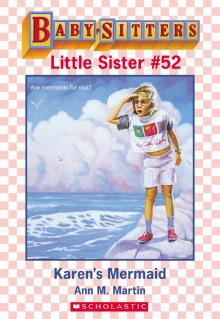 Karen's Mermaid
Karen's Mermaid Snowbound
Snowbound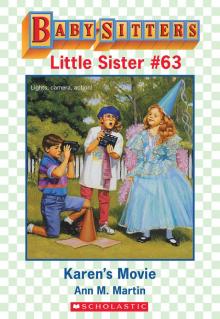 Karen's Movie
Karen's Movie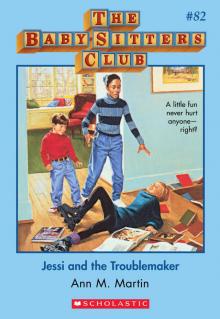 Jessi and the Troublemaker
Jessi and the Troublemaker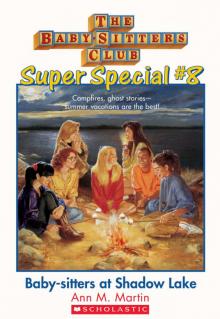 Baby-Sitters at Shadow Lake
Baby-Sitters at Shadow Lake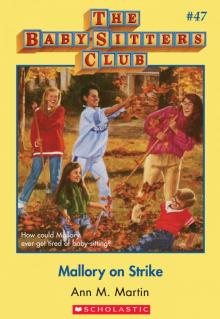 Mallory on Strike
Mallory on Strike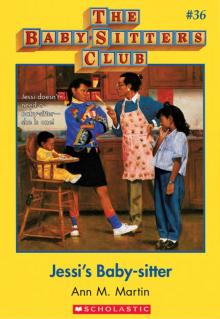 Jessi's Baby-Sitter
Jessi's Baby-Sitter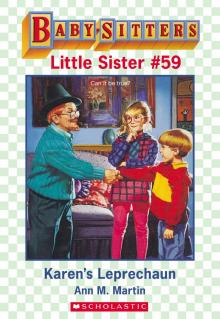 Karen's Leprechaun
Karen's Leprechaun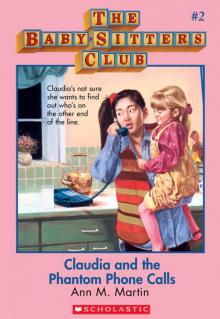 Claudia and the Phantom Phone Calls
Claudia and the Phantom Phone Calls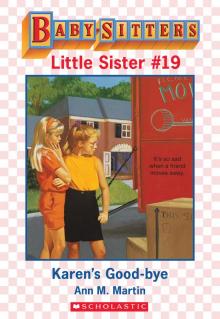 Karen's Good-Bye
Karen's Good-Bye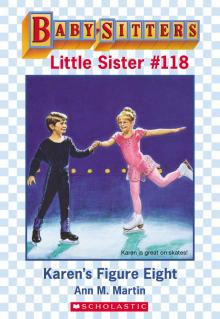 Karen's Figure Eight
Karen's Figure Eight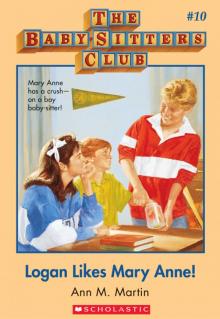 Logan Likes Mary Anne!
Logan Likes Mary Anne!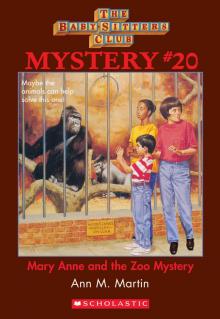 Mary Anne and the Zoo Mystery
Mary Anne and the Zoo Mystery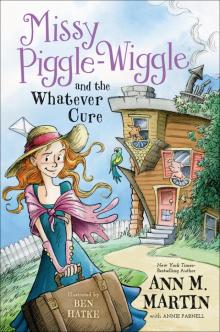 Missy Piggle-Wiggle and the Whatever Cure
Missy Piggle-Wiggle and the Whatever Cure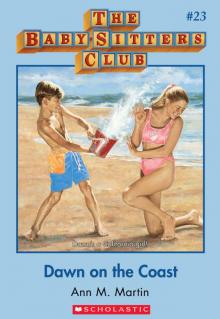 Dawn on the Coast
Dawn on the Coast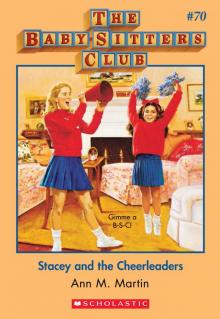 Stacey and the Cheerleaders
Stacey and the Cheerleaders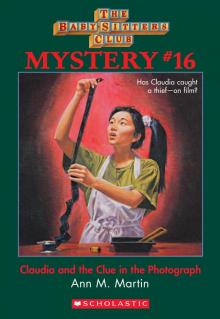 Claudia and the Clue in the Photograph
Claudia and the Clue in the Photograph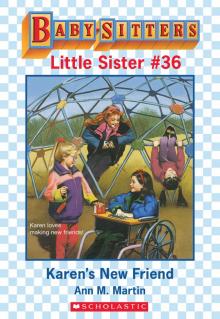 Karen's New Friend
Karen's New Friend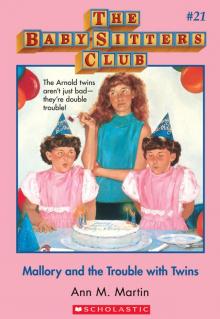 Mallory and the Trouble With Twins
Mallory and the Trouble With Twins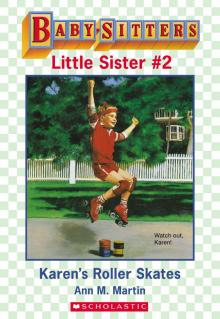 Karen's Roller Skates
Karen's Roller Skates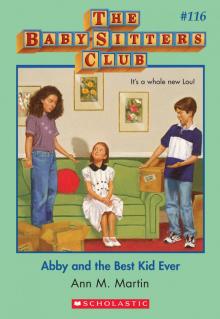 Abby and the Best Kid Ever
Abby and the Best Kid Ever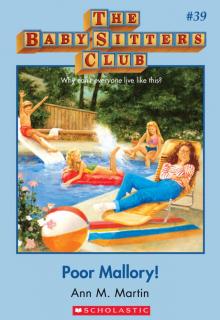 Poor Mallory!
Poor Mallory!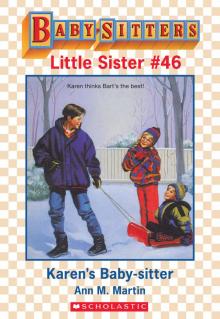 Karen's Witch
Karen's Witch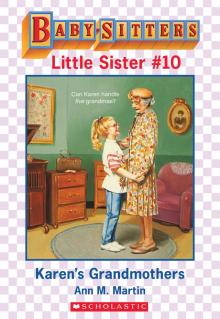 Karen's Grandmothers
Karen's Grandmothers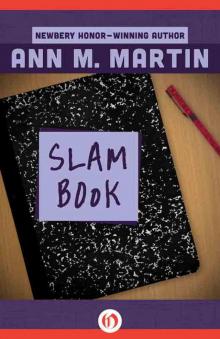 Slam Book
Slam Book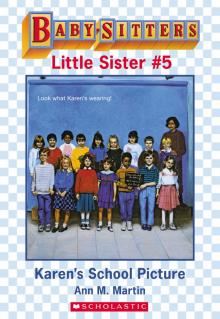 Karen's School Picture
Karen's School Picture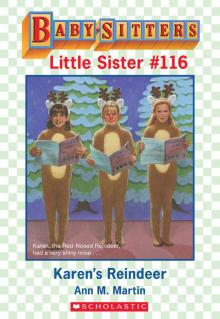 Karen's Reindeer
Karen's Reindeer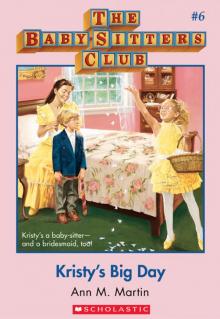 Kristy's Big Day
Kristy's Big Day The Long Way Home
The Long Way Home Karen's Sleigh Ride
Karen's Sleigh Ride On Christmas Eve
On Christmas Eve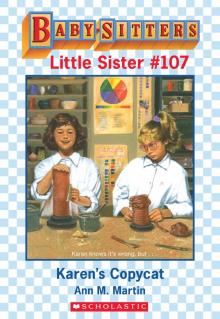 Karen's Copycat
Karen's Copycat Karen's Ice Skates
Karen's Ice Skates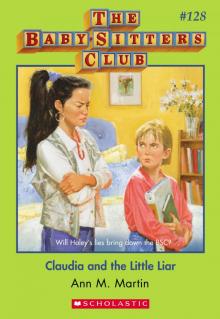 Claudia and the Little Liar
Claudia and the Little Liar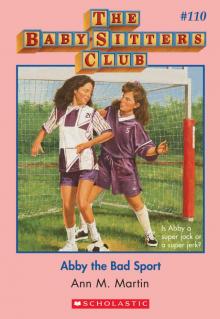 Abby the Bad Sport
Abby the Bad Sport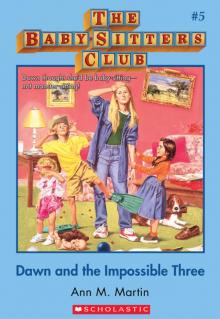 The Baby-Sitters Club #5: Dawn and the Impossible Three
The Baby-Sitters Club #5: Dawn and the Impossible Three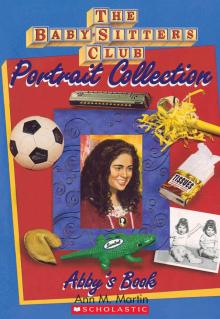 Abby's Book
Abby's Book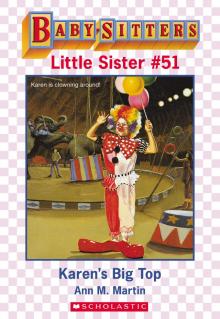 Karen's Big Top
Karen's Big Top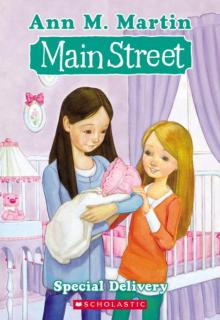 Main Street #8: Special Delivery
Main Street #8: Special Delivery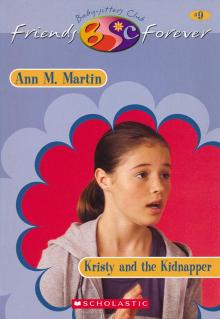 Kristy and the Kidnapper
Kristy and the Kidnapper Karen's Ski Trip
Karen's Ski Trip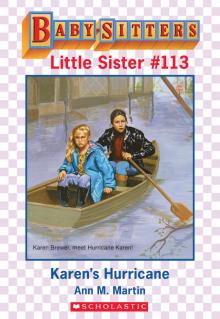 Karen's Hurricane
Karen's Hurricane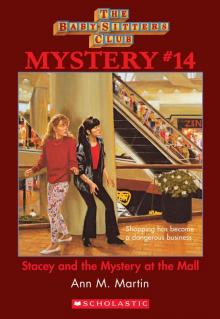 Stacey and the Mystery at the Mall
Stacey and the Mystery at the Mall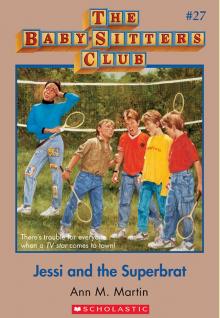 Jessi and the Superbrat
Jessi and the Superbrat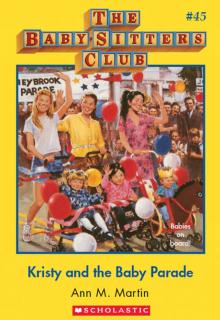 Kristy and the Baby Parade
Kristy and the Baby Parade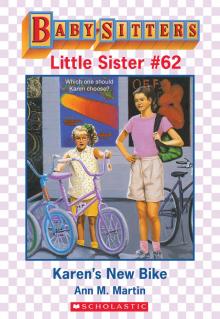 Karen's New Bike
Karen's New Bike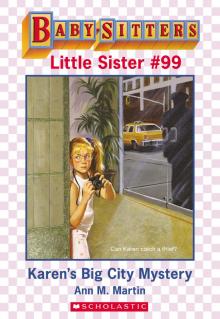 Karen's Big City Mystery
Karen's Big City Mystery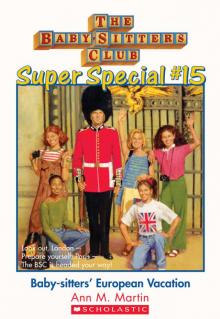 Baby-Sitters' European Vacation
Baby-Sitters' European Vacation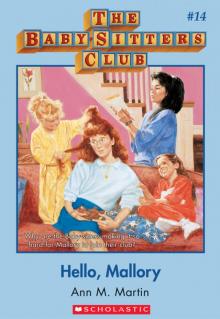 Hello, Mallory
Hello, Mallory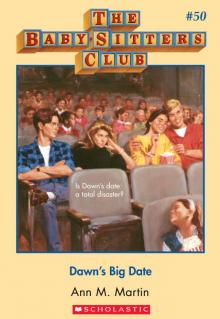 Dawn's Big Date
Dawn's Big Date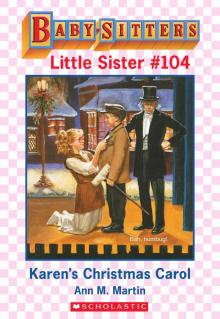 Karen's Christmas Carol
Karen's Christmas Carol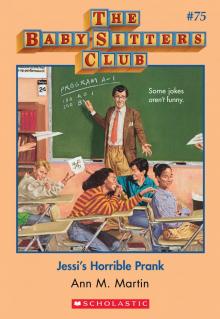 Jessi's Horrible Prank
Jessi's Horrible Prank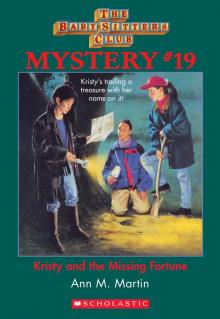 Kristy and the Missing Fortune
Kristy and the Missing Fortune Kristy and the Haunted Mansion
Kristy and the Haunted Mansion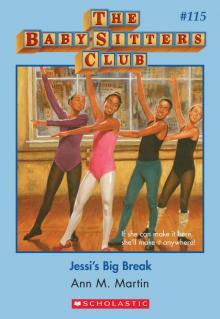 Jessi's Big Break
Jessi's Big Break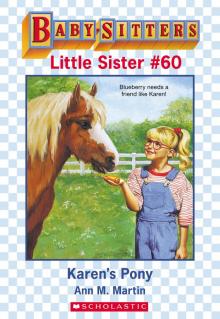 Karen's Pony
Karen's Pony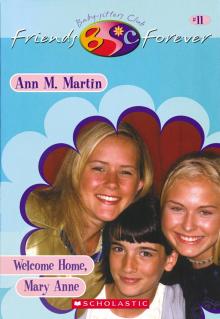 Welcome Home, Mary Anne
Welcome Home, Mary Anne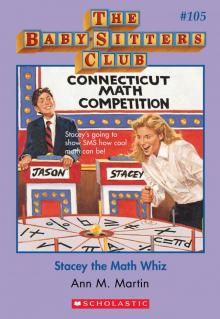 Stacey the Math Whiz
Stacey the Math Whiz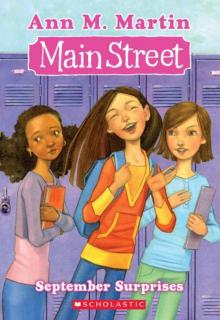 September Surprises
September Surprises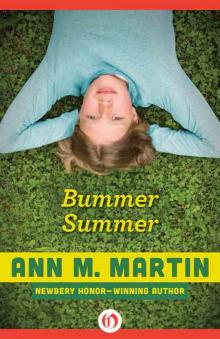 Bummer Summer
Bummer Summer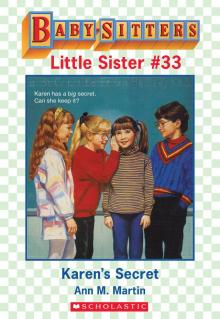 Karen's Secret
Karen's Secret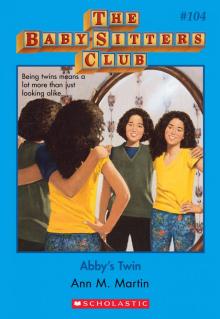 Abby's Twin
Abby's Twin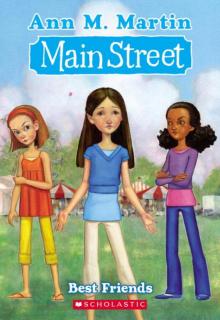 Main Street #4: Best Friends
Main Street #4: Best Friends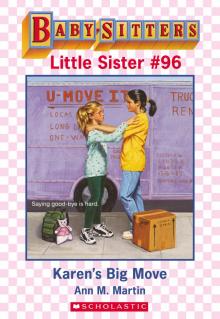 Karen's Big Move
Karen's Big Move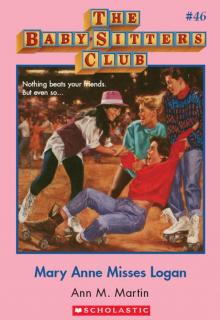 Mary Anne Misses Logan
Mary Anne Misses Logan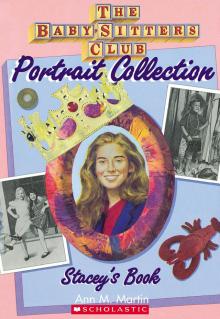 Stacey's Book
Stacey's Book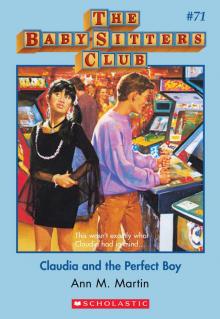 Claudia and the Perfect Boy
Claudia and the Perfect Boy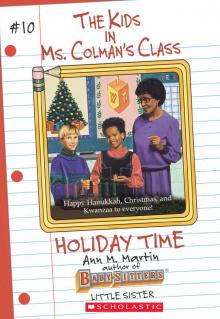 Holiday Time
Holiday Time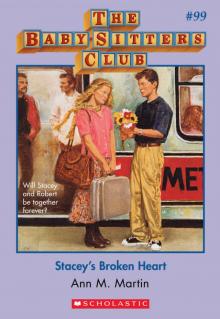 Stacey's Broken Heart
Stacey's Broken Heart Karen's Field Day
Karen's Field Day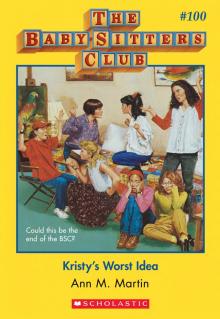 Kristy's Worst Idea
Kristy's Worst Idea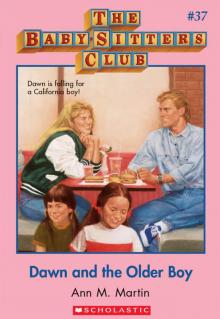 Dawn and the Older Boy
Dawn and the Older Boy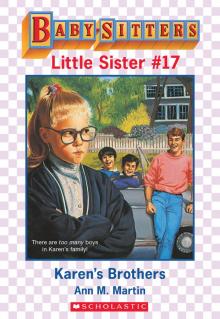 Karen's Brothers
Karen's Brothers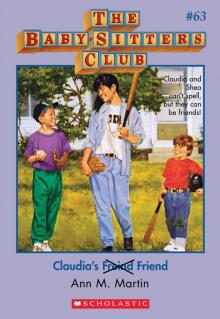 Claudia's Friend
Claudia's Friend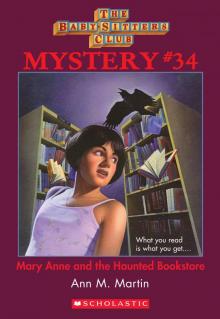 Mary Anne and the Haunted Bookstore
Mary Anne and the Haunted Bookstore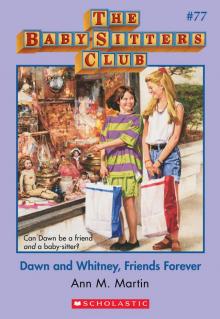 Dawn and Whitney, Friends Forever
Dawn and Whitney, Friends Forever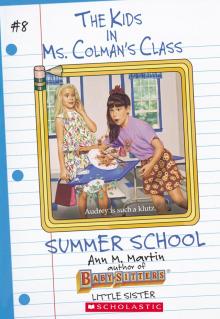 Summer School
Summer School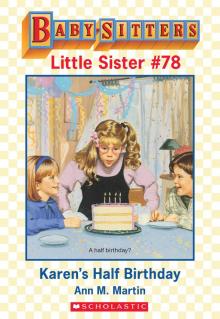 Karen's Birthday
Karen's Birthday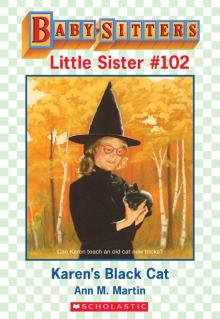 Karen's Black Cat
Karen's Black Cat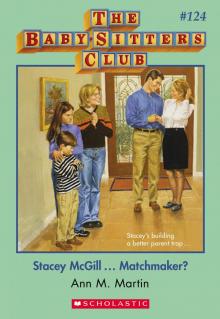 Stacey McGill... Matchmaker?
Stacey McGill... Matchmaker?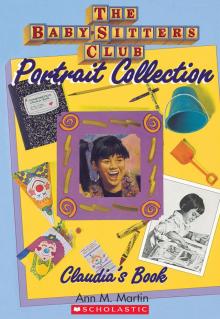 Claudia's Book
Claudia's Book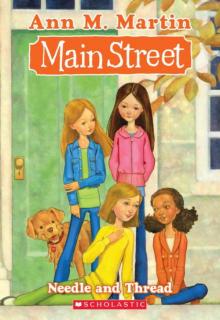 Main Street #2: Needle and Thread
Main Street #2: Needle and Thread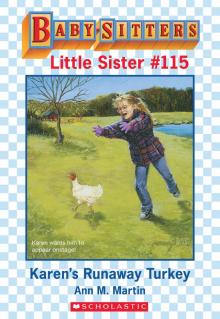 Karen's Runaway Turkey
Karen's Runaway Turkey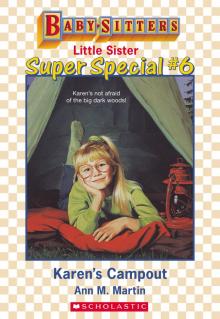 Karen's Campout
Karen's Campout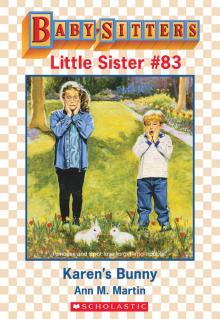 Karen's Bunny
Karen's Bunny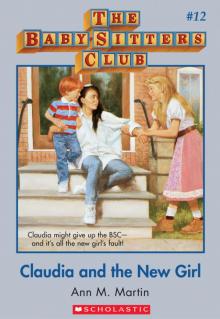 Claudia and the New Girl
Claudia and the New Girl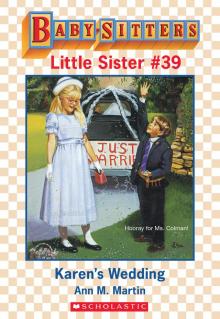 Karen's Wedding
Karen's Wedding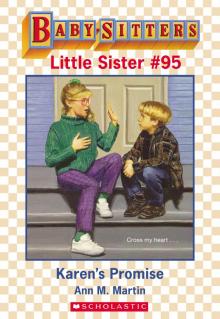 Karen's Promise
Karen's Promise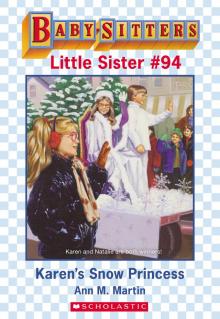 Karen's Snow Princess
Karen's Snow Princess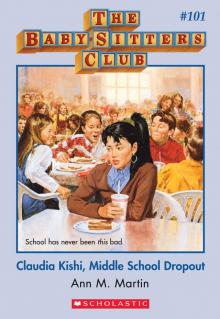 Claudia Kishi, Middle School Dropout
Claudia Kishi, Middle School Dropout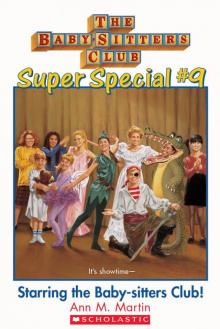 Starring the Baby-Sitters Club!
Starring the Baby-Sitters Club!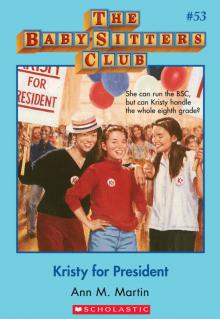 Kristy for President
Kristy for President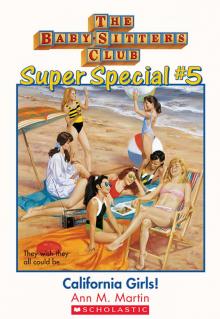 California Girls!
California Girls!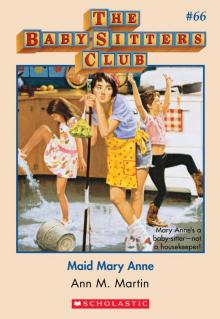 Maid Mary Anne
Maid Mary Anne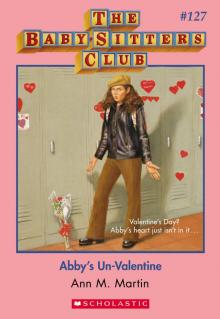 Abby's Un-Valentine
Abby's Un-Valentine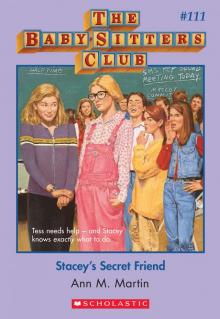 Stacey's Secret Friend
Stacey's Secret Friend Karen's Haunted House
Karen's Haunted House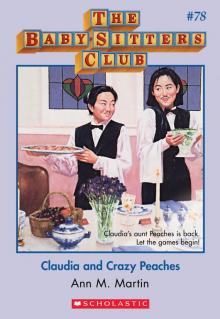 Claudia and Crazy Peaches
Claudia and Crazy Peaches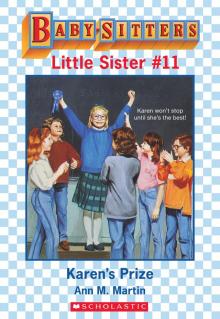 Karen's Prize
Karen's Prize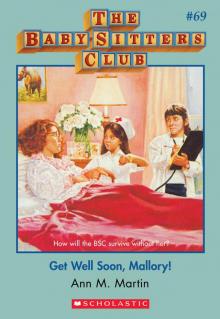 Get Well Soon, Mallory!
Get Well Soon, Mallory!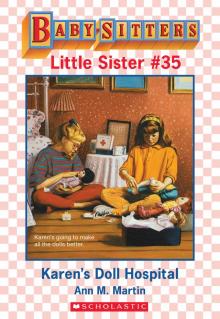 Karen's Doll Hospital
Karen's Doll Hospital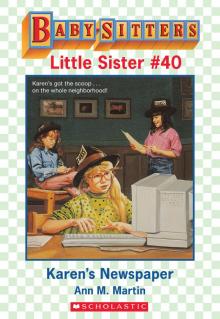 Karen's Newspaper
Karen's Newspaper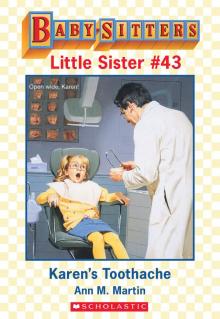 Karen's Toothache
Karen's Toothache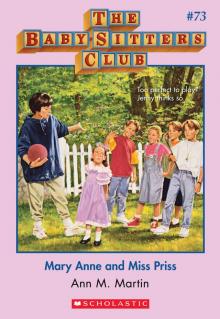 Mary Anne and Miss Priss
Mary Anne and Miss Priss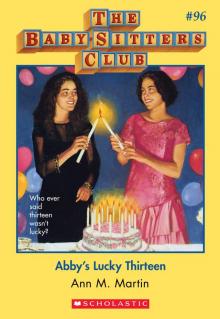 Abby's Lucky Thirteen
Abby's Lucky Thirteen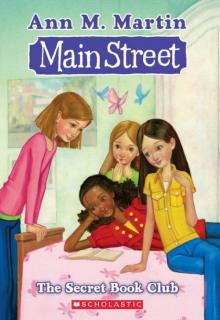 The Secret Book Club
The Secret Book Club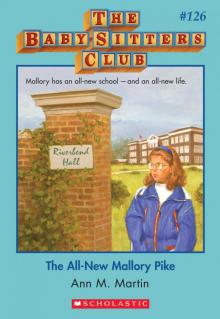 The All-New Mallory Pike
The All-New Mallory Pike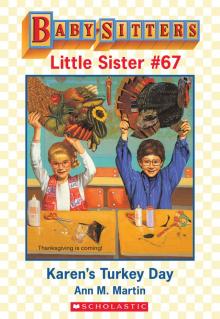 Karen's Turkey Day
Karen's Turkey Day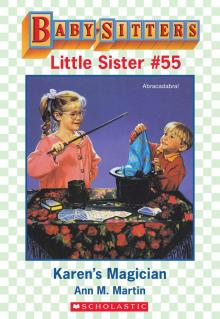 Karen's Magician
Karen's Magician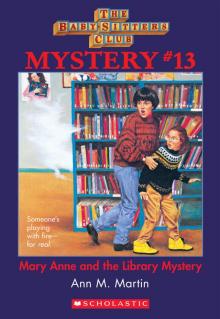 Mary Anne and the Library Mystery
Mary Anne and the Library Mystery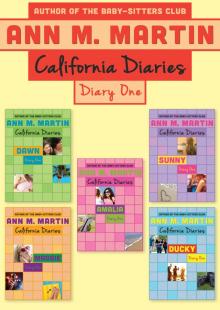 Diary One: Dawn, Sunny, Maggie, Amalia, and Ducky
Diary One: Dawn, Sunny, Maggie, Amalia, and Ducky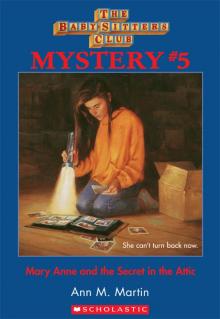 Mary Anne and the Secret in the Attic
Mary Anne and the Secret in the Attic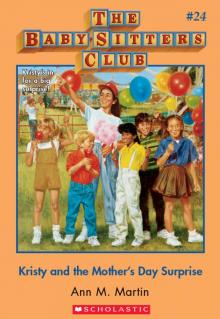 Kristy and the Mother's Day Surprise
Kristy and the Mother's Day Surprise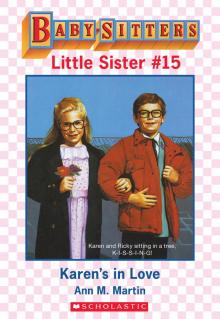 Karen's in Love
Karen's in Love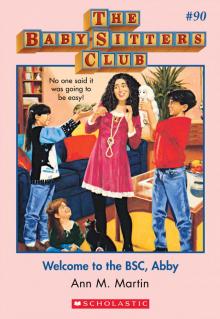 Welcome to the BSC, Abby
Welcome to the BSC, Abby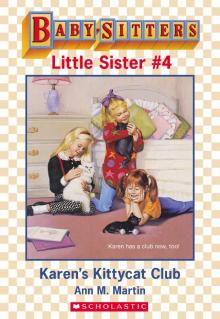 Karen's Kittycat Club
Karen's Kittycat Club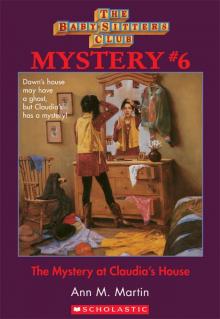 The Mystery at Claudia's House
The Mystery at Claudia's House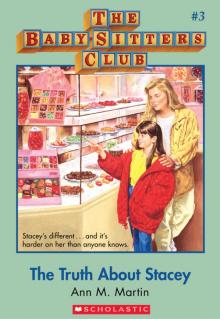 The Truth About Stacey
The Truth About Stacey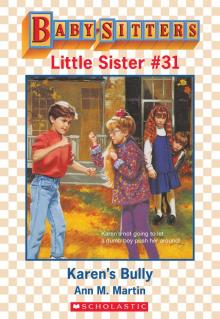 Karen's Bully
Karen's Bully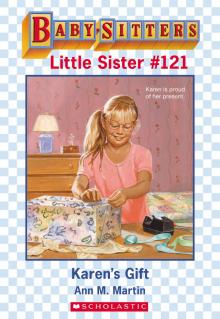 Karen's Gift
Karen's Gift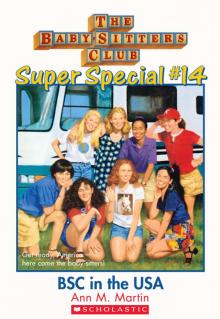 BSC in the USA
BSC in the USA Everything for a Dog
Everything for a Dog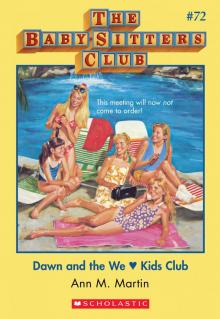 Dawn and the We Love Kids Club
Dawn and the We Love Kids Club Karen's Ghost
Karen's Ghost Stacey's Lie
Stacey's Lie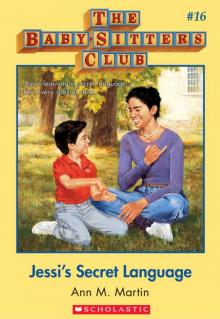 Jessi's Secret Language
Jessi's Secret Language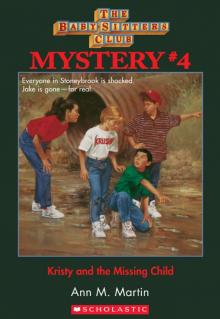 Kristy and the Missing Child
Kristy and the Missing Child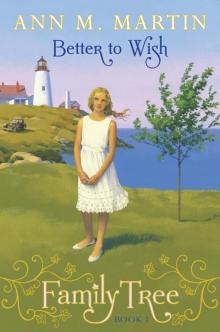 Better to Wish
Better to Wish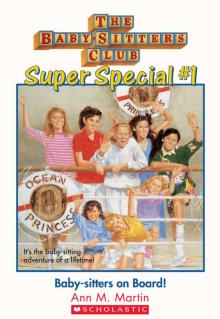 Baby-Sitters on Board!
Baby-Sitters on Board!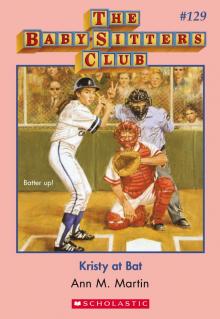 Kristy at Bat
Kristy at Bat Everything Changes
Everything Changes Don't Give Up, Mallory
Don't Give Up, Mallory A Dog's Life: The Autobiography of a Stray
A Dog's Life: The Autobiography of a Stray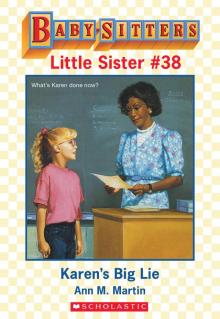 Karen's Big Lie
Karen's Big Lie Karen's Show and Share
Karen's Show and Share Mallory Hates Boys (and Gym)
Mallory Hates Boys (and Gym)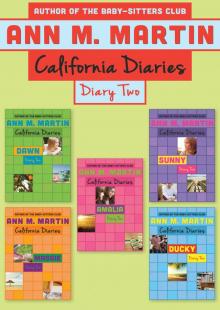 Diary Two: Dawn, Sunny, Maggie, Amalia, and Ducky
Diary Two: Dawn, Sunny, Maggie, Amalia, and Ducky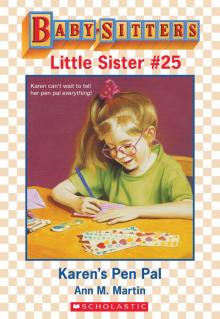 Karen's Pen Pal
Karen's Pen Pal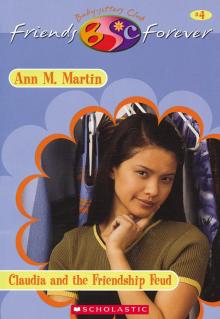 Claudia and the Friendship Feud
Claudia and the Friendship Feud Karen's Secret Valentine
Karen's Secret Valentine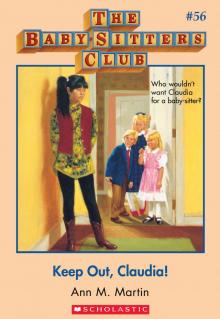 Keep Out, Claudia!
Keep Out, Claudia!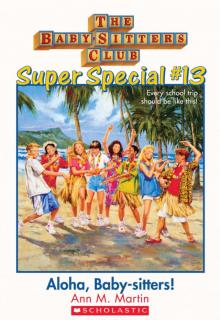 Aloha, Baby-Sitters!
Aloha, Baby-Sitters!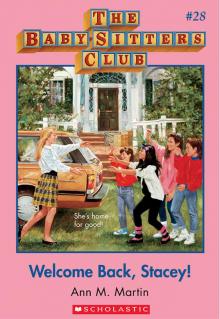 Welcome Back, Stacey
Welcome Back, Stacey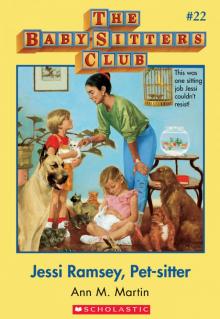 Jessi Ramsey, Pet-Sitter
Jessi Ramsey, Pet-Sitter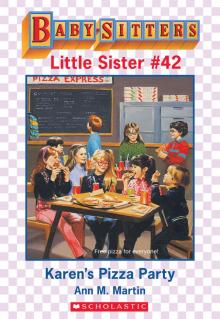 Karen's Pizza Party
Karen's Pizza Party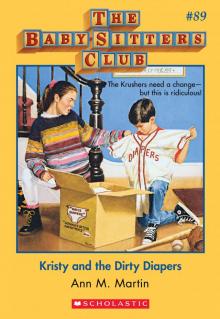 Kristy and the Dirty Diapers
Kristy and the Dirty Diapers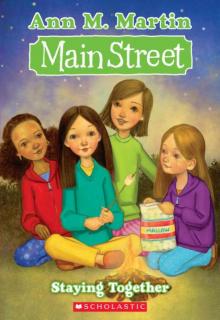 Staying Together
Staying Together Dawn and the Surfer Ghost
Dawn and the Surfer Ghost Claudia Makes Up Her Mind
Claudia Makes Up Her Mind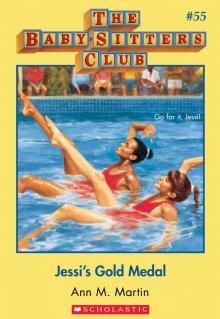 Jessi's Gold Medal
Jessi's Gold Medal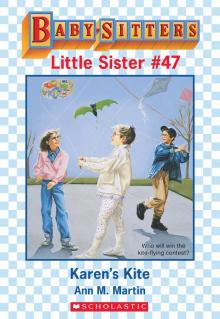 Karen's Kite
Karen's Kite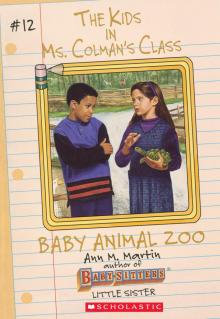 Baby Animal Zoo
Baby Animal Zoo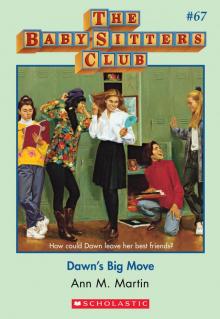 Dawn's Big Move
Dawn's Big Move Karen's Big Joke
Karen's Big Joke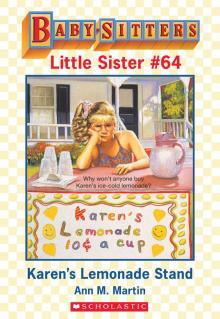 Karen's Lemonade Stand
Karen's Lemonade Stand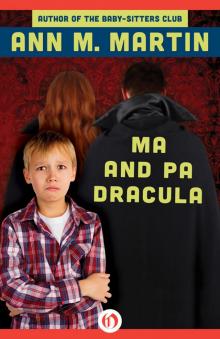 Ma and Pa Dracula
Ma and Pa Dracula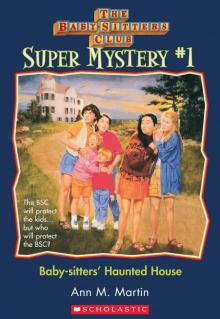 Baby-Sitters' Haunted House
Baby-Sitters' Haunted House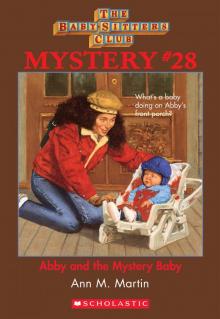 Abby and the Mystery Baby
Abby and the Mystery Baby Home Is the Place
Home Is the Place Karen's Grandad
Karen's Grandad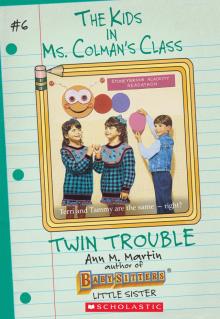 Twin Trouble
Twin Trouble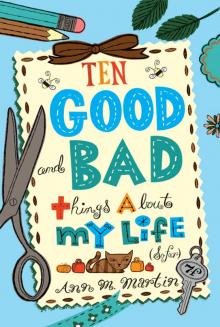 Ten Good and Bad Things About My Life (So Far)
Ten Good and Bad Things About My Life (So Far)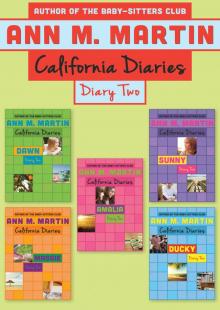 Diary Two
Diary Two Baby-Sitters Club 027
Baby-Sitters Club 027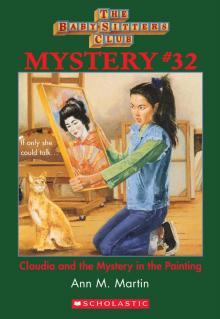 Claudia and the Mystery Painting
Claudia and the Mystery Painting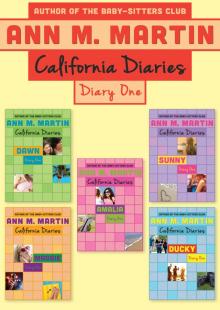 Diary One
Diary One Baby-Sitters Club 037
Baby-Sitters Club 037 Baby-Sitters Club 028
Baby-Sitters Club 028 Baby-Sitters Club 085
Baby-Sitters Club 085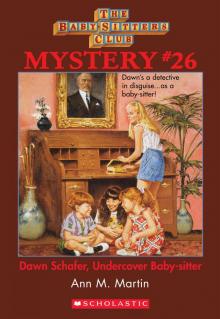 Dawn Schaffer Undercover Baby-Sitter
Dawn Schaffer Undercover Baby-Sitter Jessi's Babysitter
Jessi's Babysitter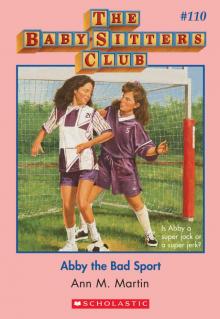 The Baby-Sitters Club #110: Abby the Bad Sport (Baby-Sitters Club, The)
The Baby-Sitters Club #110: Abby the Bad Sport (Baby-Sitters Club, The) Karen's Little Sister
Karen's Little Sister Baby-Sitters Club 058
Baby-Sitters Club 058 Claudia And The Genius On Elm St.
Claudia And The Genius On Elm St.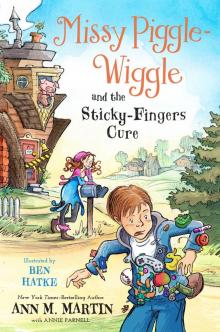 Missy Piggle-Wiggle and the Sticky-Fingers Cure
Missy Piggle-Wiggle and the Sticky-Fingers Cure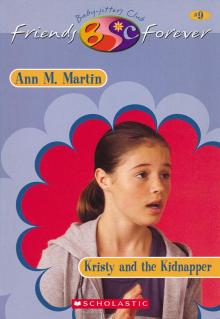 Kristy and Kidnapper
Kristy and Kidnapper Baby-Sitters Club 041
Baby-Sitters Club 041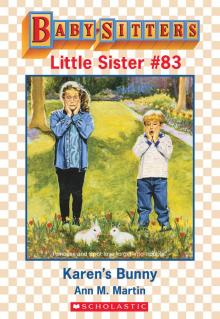 Karen's Bunny Trouble
Karen's Bunny Trouble Baby-Sitters Club 032
Baby-Sitters Club 032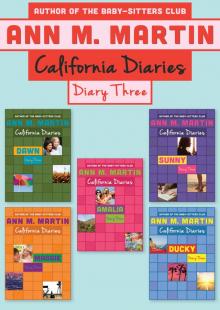 Diary Three
Diary Three Christmas Chiller
Christmas Chiller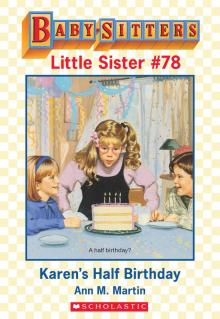 Karen's Half-Birthday
Karen's Half-Birthday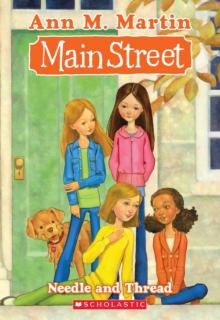 Needle and Thread
Needle and Thread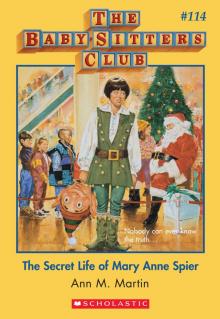 Secret Life of Mary Anne Spier
Secret Life of Mary Anne Spier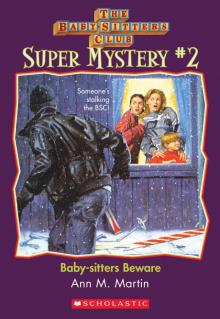 Baby-Sitters Beware
Baby-Sitters Beware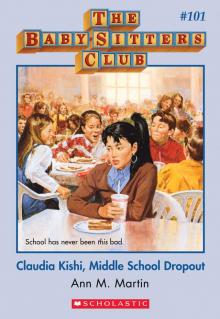 Claudia Kishi, Middle School Drop-Out
Claudia Kishi, Middle School Drop-Out Logan Likes Mary Anne !
Logan Likes Mary Anne ! Baby-Sitters Club 061
Baby-Sitters Club 061 Best Friends
Best Friends Baby-Sitters Club 031
Baby-Sitters Club 031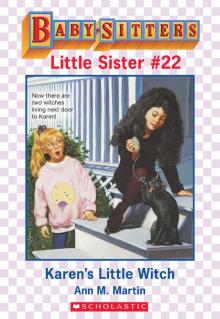 Karen's Little Witch
Karen's Little Witch Jessi Ramsey, Petsitter
Jessi Ramsey, Petsitter Baby-Sitters Club 123
Baby-Sitters Club 123 Baby-Sitters Club 059
Baby-Sitters Club 059 Baby-Sitters Club 033
Baby-Sitters Club 033 Baby-Sitters Club 060
Baby-Sitters Club 060 Baby-Sitters Club 094
Baby-Sitters Club 094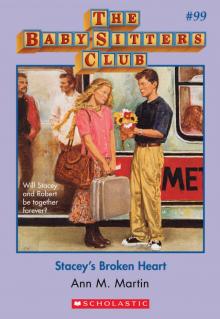 The Baby-Sitters Club #99: Stacey's Broken Heart
The Baby-Sitters Club #99: Stacey's Broken Heart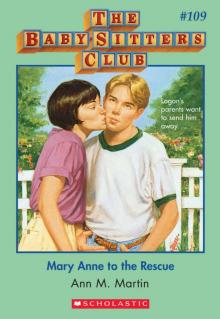 The Baby-Sitters Club #109: Mary Anne to the Rescue (Baby-Sitters Club, The)
The Baby-Sitters Club #109: Mary Anne to the Rescue (Baby-Sitters Club, The) Mystery At Claudia's House
Mystery At Claudia's House Claudia And The Sad Goodbye
Claudia And The Sad Goodbye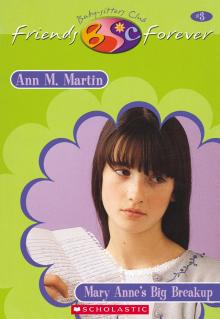 Mary Anne's Big Break-Up
Mary Anne's Big Break-Up Baby-Sitters Club 025
Baby-Sitters Club 025 Baby-Sitters Club 042
Baby-Sitters Club 042 Stacey and the Mystery of the Empty House
Stacey and the Mystery of the Empty House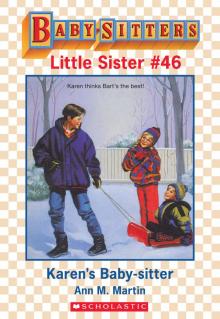 Karen's Baby-Sitter
Karen's Baby-Sitter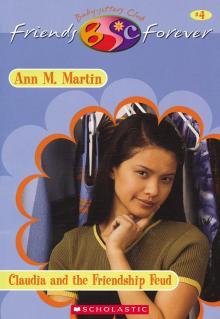 Claudia's Friendship Feud
Claudia's Friendship Feud Baby-Sitters Club 090
Baby-Sitters Club 090 Baby-Sitters Club 021
Baby-Sitters Club 021 Baby-Sitters Club 056
Baby-Sitters Club 056 Baby-Sitters Club 040
Baby-Sitters Club 040 The Baby-Sitters Club #108: Don't Give Up, Mallory (Baby-Sitters Club, The)
The Baby-Sitters Club #108: Don't Give Up, Mallory (Baby-Sitters Club, The)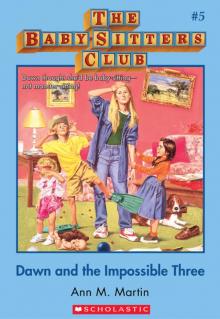 Dawn and the Impossible Three
Dawn and the Impossible Three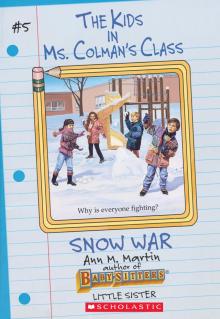 The Snow War
The Snow War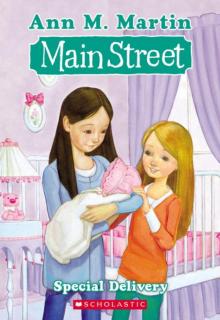 Special Delivery
Special Delivery Baby-Sitters Club 057
Baby-Sitters Club 057 Mary Anne And Too Many Babies
Mary Anne And Too Many Babies Baby-Sitters Club 030
Baby-Sitters Club 030